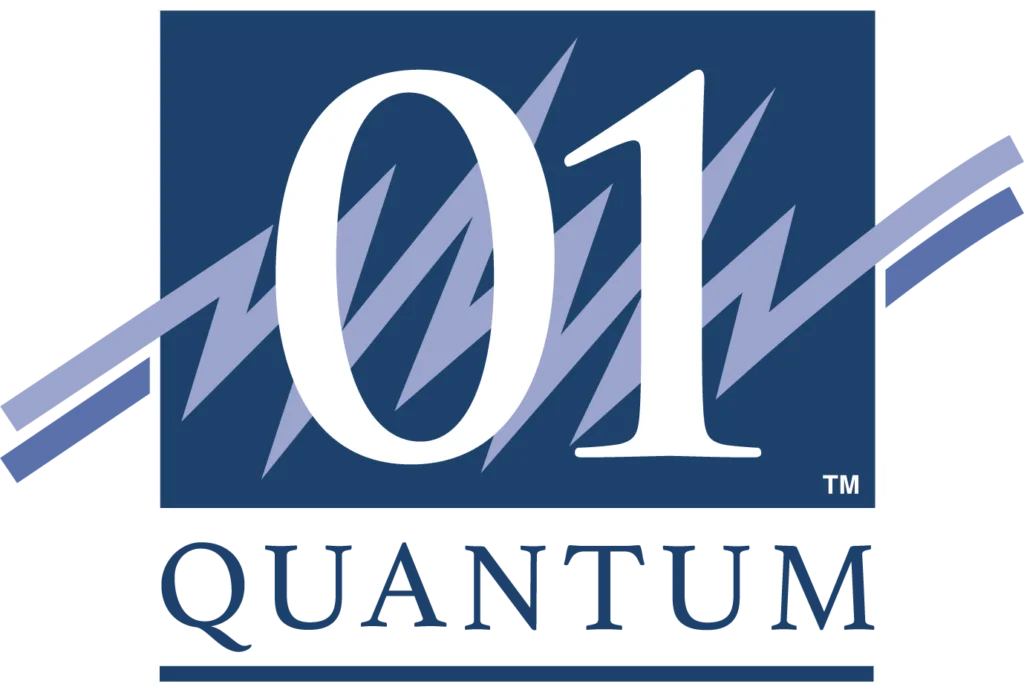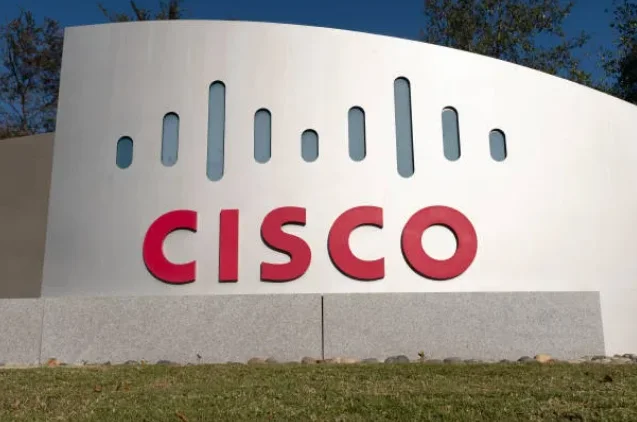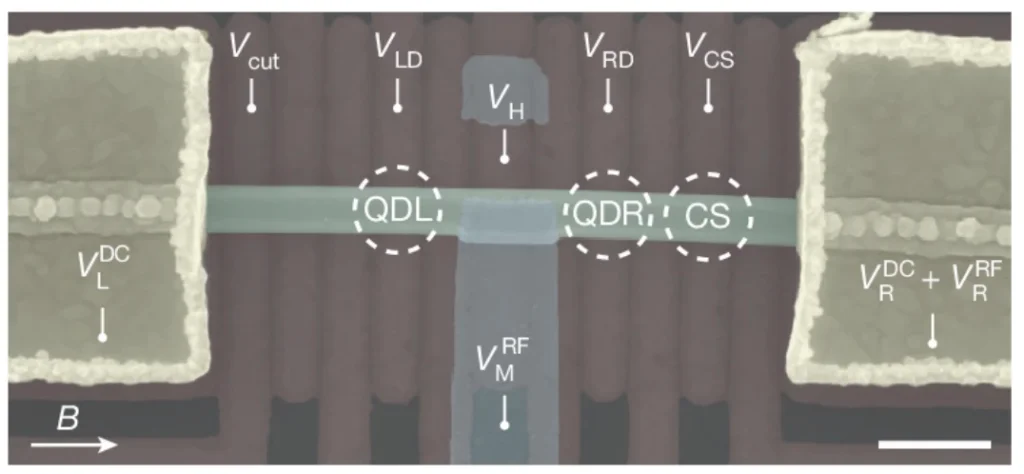The development of quantum computing companies over the last decade continues to accelerate, driven by the ambition to develop quantum processors and the tools , both hardware and software , that support them.
This article presents a snapshot of the evolving quantum computing ecosystem, as it stands today and heading into 2026.
If you’re seeking deeper insights into these quantum companies , regularly updated and enhanced by our analyst team , you may want to explore our Quantum Intelligence Platform.
Got an update or a suggestion? We welcome your input , feel free to reach out to us at the contact info page of Resonance’s website.

Quantum Computing’s Role Across Industries
Quantum computing is steadily gaining ground in sectors like healthcare, energy, and finance, offering new ways to approach previously intractable computational problems. Unlike other complex technologies such as artificial intelligence (AI) or virtual reality (VR), quantum computing often remains a mystery to the broader public, understood in depth only by experts in the field.
Quantum computing is expected to perform tasks that are currently out of reach for classical systems , powered by purpose-built hardware and software stacks. Companies across the space are working to make this powerful technology more accessible and usable.
As technological breakthroughs continue to unfold, the quantum landscape is expanding rapidly. Here, we explore how the ecosystem of quantum computing companies has taken shape over the last two decades.
Where Does Our Data Come From?
While our list highlights over seventy leading quantum players, it represents only a snapshot of the broader quantum landscape we track through our Quantum Data Intelligence Platform – the world’s leading market intelligence source dedicated to quantum technologies.
The platform aggregates and curates comprehensive data from across the global quantum ecosystem, including companies, investors, academic groups, and government initiatives, applying a custom taxonomy and metadata system designed to segment and classify the sector with precision. It combines AI-enhanced big data collection with expert analyst insights, ensuring that funding flows, strategic partnerships, and quantum technology developments are consistently updated, contextualized, and made actionable. By drawing on this foundation, our coverage not only spotlights the innovators shaping the quantum market today but also provides readers with a reliable, data-backed view of how the industry is advancing toward commercial quantum advantage.
Due to space constraints, this list of quantum computing companies is not exhaustive, and some quantum communications or cybersecurity firms are included only where they overlap with key hardware or software developments. Our classification reflects the dual nature of the quantum industry: a race led by incumbents with deep pockets and infrastructure, and a wave of nimble startups carving out novel approaches to quantum engineering, error correction, simulation, and more.
This company list is current as of winter 2026.
Top Quantum Computing Companies in 2026
Leading Big Tech & Public Companies in Quantum (in Alphabetical Order)
Several major U.S. corporations have taken center stage in quantum computing. IBM, with its century-long track record of tech innovation, leads this group. Meanwhile, Google, Microsoft, and AWS , though relatively younger , have each invested significantly in quantum R&D.
Other global players included in this section, which have gone public via SPAC, or Special Purpose Acquisition Company, also feature in our review, recognize the transformative potential of quantum computing across industries. These companies are ramping up their efforts to stay at the forefront as the sector evolves beyond the noisy intermediate-scale quantum (NISQ) era, toward fault-tolerant systems and, ultimately, quantum advantage , the tipping point where quantum machines usefully outperform their classical counterparts.
1. Amazon Braket (Amazon)

Amazon Braket, launched in 2019 by Amazon Web Services (AWS), is a fully managed quantum computing service that provides researchers, developers, and enterprises with unified, on-demand access to a broad array of quantum hardware technologies and simulation tools. Designed to lower the barriers to entry in quantum computing, Braket enables users to design, test, and run quantum algorithms across multiple device types without needing to manage infrastructure.
Through a pay-as-you-go model and deep integration with the AWS ecosystem, users can quickly launch Jupyter notebooks, access pre-built quantum algorithms, and explore powerful simulators before deploying on actual quantum processors. Braket supports a diverse set of hardware from leading providers, including superconducting systems from Rigetti Computing, Oxford Quantum Circuits, neutral atom from QuEra, ion-trap systems from IonQ, quantum annealers from D-Wave, and photonic devices from Xanadu. Additional ecosystem partners include Toshiba and IQM.
The platform includes a range of simulation tools tailored to different quantum circuit types and levels of complexity, such as SV1 (a state vector simulator), TN1 (a tensor network simulator), DM1 (a noise-aware density matrix simulator), and a free local simulator. This simulator suite allows users to validate and optimize their algorithms before committing resources to physical quantum hardware.
In 2023, AWS introduced Braket Direct, a reservation-based program that grants exclusive access to high-performance quantum devices, including IonQ’s 30-qubit Forte system. It also launched the Amazon Braket Digital Learning Plan, a free educational program designed to help developers build foundational skills in quantum computing and earn digital credentials. Amazon continues to support internal R&D for quantum hardware through tools such as Palace, a scalable parallel codebase used for large-scale 3D electromagnetics simulations essential to hardware design.
Braket’s capabilities have continued to expand. In 2024, it integrated Rigetti’s 84-qubit Ankaa-2 processor, the company’s most advanced superconducting quantum system, and introduced the Quantum Embark Program. This initiative offers a structured, modular approach for enterprises to explore, test, and prepare for quantum adoption, supporting everything from use-case discovery to algorithm development.
In February 2025, AWS unveiled Ocelot, its first proprietary quantum chip developed at the AWS Center for Quantum Computing at Caltech. Ocelot is built with cat qubits that suppress environmental noise and reduce error-correction overhead, using an architecture of 14 physical qubits including buffers and detection circuits. Operating with minimal power requirements, Ocelot represents AWS’s growing investment in hardware innovation.
Amazon Braket is tightly integrated with AWS cloud infrastructure, offering scalable resources and developer-friendly environments that make it accessible to users at any level of quantum expertise. With continued advances in hardware, simulation, education, and enterprise programs, Braket is positioning itself as a central hub for scalable, hybrid quantum-classical research and development across academia, industry, and government.
Read our most recent news on Amazon Braket.
2. D-Wave Systems

D-Wave Quantum Inc. is a publicly traded, full-stack quantum computing company founded in 1999, known for pioneering quantum annealing and now advancing into gate-based superconducting quantum computing. With 100+ employees and over 100 enterprise and institutional partners, D-Wave offers both quantum hardware and cloud-based software tools to solve complex optimization problems across industries like finance, life sciences, materials science, and AI/ML.
D-Wave’s LEAP platform provides real-time cloud access to its quantum systems, software development kits (Ocean), and hybrid solvers. Their Advantage2 processor, launched in 2024, includes over 4,400+ qubits with improved coherence, a new Zephyr topology, and 20-way qubit connectivity, significantly enhancing problem-solving performance. The processor is expected to deliver up to 25,000× speedups for some materials science tasks and 5× higher precision for high-complexity applications.
D-Wave is also addressing quantum error mitigation and recently expanded LEAP to support generative AI, RBM-based training, and GPU integration. Collaborations, such as with Japan Tobacco’s pharma unit, have demonstrated quantum’s value in drug discovery. Meanwhile, new deployments like a secure U.S.-based system with Davidson Technologies underline D-Wave’s move into sensitive government and defense applications.
Their January 2025 Leap Quantum LaunchPad program offers startups and researchers a three-month free trial to access their 5,000+ qubit systems, development tools, and expert support , further broadening adoption and application of quantum technology.
Read our most recent news on D-Wave Systems.
3. IBM
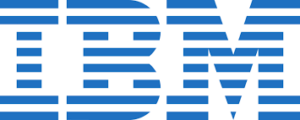
Founded in 1911 in Endicott, New York by Charles Ranlett Flint, IBM has grown into one of the world’s most enduring and influential technology companies. In the field of quantum computing, IBM maintains a leading position through its robust hardware portfolio, open-source tooling, and comprehensive cloud services. Its quantum ecosystem includes the IBM Quantum Composer and the IBM Quantum Lab (formerly IBM Quantum Experience), both of which provide public and premium access to IBM’s quantum systems. These cloud-based platforms enable users to run algorithms, explore simulations, and engage with educational resources including tutorials and an interactive quantum computing textbook.
IBM’s quantum hardware is based on superconducting qubits and is supported by a suite of advanced software tools including Qiskit and OpenQASM. The company operates the world’s largest fleet of quantum systems for real-world applications through its Quantum Computation Center in New York. Notable processors include Osprey with 433 qubits, Condor with 1,121 qubits, and the high-fidelity Heron series. These are deployed via IBM Quantum System One and the modular System Two architecture, accessible through cloud offerings like IBM Quantum Safe, Qiskit Runtime, and Qiskit Serverless.
In 2024, IBM expanded its infrastructure and software capabilities by opening its first European Quantum Data Center in Germany and launching new tools such as Qiskit Code Assistant and Guardium Quantum Safe. The company also introduced fractional gate operations to reduce quantum circuit depth and improve algorithm performance. IBM’s long-term roadmap stretches to 2033, with milestones targeting scalable, fault-tolerant quantum systems enabled through modular and hybrid system designs. The company continues to build strategic partnerships, including with firms like Pasqal, to foster interoperability and advance quantum-centric supercomputing.
IBM’s quantum vision encompasses not just hardware, but a full-stack, cloud-accessible, and developer-focused platform designed to bring quantum advantage into real-world domains like finance, materials science, and cryptography. With a legacy of innovation and a forward-looking strategy, IBM remains a cornerstone of the global quantum ecosystem.
Read our most recent news on IBM.
4. IonQ

IonQ is a public quantum computing company founded in 2015 (with a heritage spanning decades), specializing in trapped ion quantum computers and offers a full-stack quantum platform accessible via major cloud services like Amazon Braket and its own IonQ Quantum Cloud. Its systems are designed for high-fidelity, rack-mounted deployment, enabling seamless integration into modern data centers.
The company has introduced multiple quantum systems including IonQ Aria, Forte, and the enterprise-grade Forte Enterprise, which reached 36 algorithmic qubits (AQ36) as of December 2024. The Forte system incorporates acousto-optic deflector (AOD) technology, enabling precise laser targeting to individual ions , critical for reducing noise and improving scalability. The platform supports use cases in optimization, quantum machine learning, finance, AI, and chemistry, and is actively being deployed in research hubs across the U.S. and Europe, including partnerships with QuantumBasel in Switzerland and the University of Maryland’s QLab.
IonQ is pioneering quantum networking through its photonic interconnects , enabling entanglement between multiple QPUs , and recently acquired Qubitekk, a leader in quantum communications. Its novel Clifford Noise Reduction (CliNR) technique has drastically reduced the overhead for quantum error correction, a significant step toward scalable, near-term quantum applications.
The company has secured major enterprise and government partnerships, including Dell, Airbus, the Naval Research Lab, and DESY, while operating out of multiple data centers in College Park (MD), Seattle, and Basel. In March 2025, this quantum company raised $360 million through an ATM equity offering, boosting its cash reserves to over $700 million and ensuring funding for both its computing and networking roadmaps. IonQ subsequently raised an additional $1 billion, bringing its cash position to roughly $1.6 billion, giving it one of the strongest balance sheets in the quantum sector.
IonQ has aggressively expanded through strategic acquisitions in 2024–2025. It completed the acquisition of Qubitekk in January 2025, strengthening its quantum-networking capabilities and patent base. In February, it secured control over Geneva-based ID Quantique, bolstering its quantum-safe cryptography and detection portfolio. By mid-year, IonQ closed on Capella Space (July 2025), adding Earth-observation satellite assets to enable space-based QKD networks. Earlier acquisitions include Lightsynq, enhancing its quantum memory roadmap, and most recently, the June 2025 announcement to acquire Oxford Ionics for approximately $1.075 billion in stock and cash, bringing ion-trap-on-a-chip technology and a clear path toward fault-tolerant systems with over two million physical qubits by 2030.
Read our most recent news on IonQ.
5. Google Quantum AI

Google Quantum AI is working to develop practical and transformative quantum computing technologies, combining advances in superconducting hardware with cutting-edge quantum software. Founded in 2013 as a collaboration between Google, NASA, and the Universities Space Research Association, the Quantum Artificial Intelligence Lab quickly became a hub for innovation. In 2019, it achieved global recognition by claiming quantum supremacy, demonstrating that its Sycamore processor could complete a task infeasible for classical computers within a reasonable timeframe , a milestone that marked the beginning of a new era in quantum experimentation.
The program is guided by Engineering Director Hartmut Neven and is structured around a clear, step-by-step roadmap toward fault-tolerant quantum computing. Google’s long-term goal is to develop large-scale, error-corrected systems capable of solving real-world problems in fields like logistics, artificial intelligence, quantum chemistry, and foundational computer science. Its quantum hardware is based on the Sycamore architecture, with recent progress in quantum error correction enabling logical qubits to outperform physical ones. As of 2024, Google’s 101-qubit device achieved a 0.143% error-per-cycle rate, improving logical qubit lifetimes by a factor of 2.4. The company also introduced tools like AlphaQubit, an AI-powered decoder that accelerates error correction, and LUCI, a dynamic framework for fault-tolerant quantum circuit adaptation that reduces logical error rates by a factor of 36.
On the software side, Google has created a rich ecosystem for quantum algorithm development. Cirq, its open-source Python framework, supports near-term quantum algorithm design on both simulators and real devices. TensorFlow Quantum bridges classical machine learning with quantum computation, while OpenFermion provides tools for simulating fermionic systems, particularly in quantum chemistry. Google Quantum AI continues to explore the fusion of quantum computing with artificial intelligence, enabling hybrid classical-quantum models to prototype machine learning solutions.
The team is also advancing hardware scalability through investments in cryogenic infrastructure and modular hybrid architectures. In collaboration with NVIDIA, Google simulates 40-qubit systems using more than 1,000 H100 GPUs, reinforcing its commitment to integrated classical-quantum processing. In 2024, the company further deepened its reach into the quantum ecosystem by investing in QuEra Computing, aiming to enhance joint capabilities in quantum error correction.
Google Quantum AI’s new 105-qubit Willow chip marks a major milestone in the company’s quantum computing journey, showcasing enhanced computational power, scalable error correction, and a clear path toward commercially viable systems. In benchmark testing, Willow completed in minutes a calculation that would take the fastest classical supercomputer an astronomical timeframe, highlighting the exponential advantage quantum computing holds over classical methods. Most importantly, by demonstrating that increasing qubit numbers can actually reduce errors, Willow validates a fundamental approach to quantum error correction and paves the way toward large-scale, fault-tolerant quantum machines capable of addressing real-world challenges.
With a combination of groundbreaking research, open-source tool development, and strategic partnerships, Google Quantum AI remains one of the most influential players in the global quantum computing race. Its vision is not only to build fault-tolerant quantum systems but to unlock their potential across a wide spectrum of applications and industries.
Read our most recent news on Google Quantum AI.
6. Microsoft

Microsoft has positioned itself as a key player in the global quantum computing race, driven by a long-term vision of developing scalable, fault-tolerant systems built on topological qubit architecture. Its quantum program is anchored by Azure Quantum, a cloud-based, hardware-agnostic platform that brings together software tools, third-party quantum hardware, and cloud-native development environments. This open ecosystem enables developers, researchers, and enterprises to build quantum algorithms today that are compatible with future quantum hardware , bridging near-term experimentation with long-term strategic capability.
Microsoft’s entry into quantum computing followed the efforts of its Quantum Architectures and Computation (QuArC) group, based in Redmond and led by Krysta Svore, which laid the early groundwork for quantum algorithm development and quantum circuit theory. In 2017, Microsoft launched Q#, a domain-specific programming language for quantum computing, along with its Quantum Development Kit (QDK), offering compilers, emulators, and integration with Visual Studio and Python. The QDK was open-sourced in 2019 to encourage transparency and community participation after a setback involving a retracted scientific paper on Majorana particles, a foundational element in Microsoft’s topological qubit approach.
In recent years, Microsoft has doubled down on its topological strategy. In July 2025, it published findings on its Majorana 1 chip, a new quantum prototype built using novel “topoconductor” materials to stabilize Majorana zero modes. While initial benchmarking met “Milestone 1” on Microsoft’s roadmap, key experimental validations , such as demonstrating anti-commutation between Pauli measurements , remain incomplete, meaning a true topological qubit has not yet been realized. Despite these hurdles, the company views topological qubits as a pathway to massively scalable systems with inherently low error rates, capable of reaching a million-qubit regime.
Azure Quantum continues to evolve, integrating quantum hardware from partners like Quantinuum and Atom Computing. In 2025, Microsoft collaborated with Quantinuum to achieve high-fidelity entanglement of 12 logical qubits and is co-developing a 24-logical-qubit commercial system with Atom Computing. The company has also introduced AI-powered quantum chemistry tools , Generative Chemistry and Accelerated DFT , and added post-quantum cryptography capabilities to SymCrypt, its core cryptographic library used across Azure and Microsoft 365.
Software advancements have kept pace with hardware ambition. Microsoft has open-sourced its Azure Quantum Resource Estimator, allowing developers to simulate resource requirements for error-corrected quantum algorithms. Meanwhile, the Azure Quantum platform continues to serve as a unifying layer for both hardware and software, with tools that facilitate the integration of quantum algorithms into existing classical workflows.
Although Microsoft closed its quantum research facility in Sydney in 2024 to consolidate operations in the United States, the company remains globally engaged, collaborating with academic, industrial, and governmental partners. Under the leadership of Julie Love, Partner and Product Leader for Quantum Computing, Microsoft’s quantum strategy reflects both patience and persistence, focusing on high-risk, high-reward innovation to ultimately achieve practical quantum advantage through topological fault-tolerant architectures.
Read our most recent news on Microsoft.
7. NVIDIA

NVIDIA is a core enabler of hybrid quantum–classical computing and does not build its own quantum processing units (QPUs). Instead, the company supplies the acceleration stack — GPUs, software, and reference architectures — that lets developers design, simulate, and orchestrate quantum workloads alongside classical HPC and AI.
NVIDIA’s quantum software foundation is CUDA-Q (formerly QODA), an open, qubit-agnostic programming model for writing hybrid CPU/GPU/QPU workflows. CUDA-Q targets external quantum hardware through provider plug-ins while also driving high-performance simulation on NVIDIA GPUs. Complementing this, cuQuantum delivers optimized libraries for state-vector and tensor-network simulation, enabling researchers to validate algorithms, study error mechanisms, and prototype error-correction strategies at scales impractical on current QPUs.
For enterprise and cloud deployment, NVIDIA Quantum Cloud packages these capabilities as managed microservices, integrating with major public clouds so teams can spin up large simulations without building bespoke HPC environments. On the systems side, DGX Quantum — co-developed with Quantum Machines — provides a reference architecture that tightly couples GPU nodes to QPU control hardware, reducing latency and simplifying real-time feedback between classical accelerators and external quantum devices.
NVIDIA’s ecosystem is intentionally QPU-agnostic. The company partners with leading hardware makers and labs across trapped-ion, superconducting, neutral-atom, photonic, and annealing modalities, positioning its stack as the common layer for development, scheduling, calibration assistance, and large-scale simulation. High-visibility collaborations have used fleets of NVIDIA GPUs to emulate complex device physics and mid-scale circuits, stress-testing error-correction schemes and control protocols before committing to scarce QPU time.
The result is a pragmatic role: accelerate near-term research and industrial experimentation, standardize hybrid programming patterns, and compress iteration cycles — while leaving QPU design and manufacturing to specialized vendors. With CUDA-Q, cuQuantum, Quantum Cloud, and DGX Quantum, NVIDIA has become a default backbone for quantum R&D across academia, industry, and government — without competing as a QPU builder.
Read our most recent news on NVIDIA.
8. Quantum Computing Inc.

Quantum Computing Inc. (QCI), founded in 2018, is a public quantum company that delivers full-stack quantum solutions, with a specialization in photonic quantum computing. With a team of 11–50 employees, QCI offers platforms tailored to complex optimization and security challenges across sectors such as finance and software.
The company significantly expanded its capabilities following the 2022 acquisition of QPhoton, which enhanced its quantum photonics expertise across both computing and sensing. Its flagship product, the Entropy Quantum Computing system (EQC), utilizes photonic architectures. In 2023, QCI broadened its commercial offering by launching a Quantum Random Number Generator (QRNG), capable of producing truly random number sequences for secure applications. Initially offered via cloud subscription, a physical, handheld QRNG device followed later that year.
In March 2024, QCI introduced Dirac-3, a photonics-based quantum optimization platform that uses nonlinear quantum optics to encode and solve integer optimization problems. Dirac-3 operates at room temperature, consumes only 100 watts of power, and supports up to 964 qudits with 200 discrete modes each , surpassing conventional qubit-based architectures in certain applications. Its 6U rack-mountable form factor is designed for on-premise enterprise use without special infrastructure.
QCI has also ventured into photonic chip manufacturing. In November 2024, it received its first commercial order for its thin film lithium niobate (TFLN) photonic chip foundry from a major research and technology institute in Asia. This order leverages QCI’s proprietary techniques in etching, processing, and wafer-scale photonic characterization.
QCI maintains a small but growing network of partnerships and investors, including a collaboration with millionways to integrate AI sensing algorithms with QCI’s photonic quantum computing capabilities. Through these developments, QCI continues to position itself as an innovator in compact, low-energy photonic quantum systems and related quantum hardware technologies.
Read our most recent news on Quantum Computing Inc.
9. Rigetti Computing
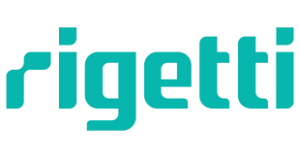
Rigetti Computing is a public quantum computing company founded in 2013 and headquartered in Berkeley, California. It specializes in superconducting qubit-based quantum processors and provides both quantum hardware and software through its Quantum Cloud Services (QCS) platform. Rigetti’s full-stack offerings include quantum-classical infrastructure for ultra-low latency, multi-cloud access, and a proprietary software development kit (Forest SDK), which includes pyQuil, the Quil compiler (QuilC), and a Quantum Virtual Machine (QVM).
Rigetti operates some of the most advanced superconducting quantum processors on the market. It was one of the first to deliver quantum computing over the cloud in 2017 and has since made its hardware available on platforms like Microsoft Azure and Amazon Braket. Its current systems include the 84-qubit Ankaa-2, based on Rigetti’s fourth-generation chip architecture featuring tunable couplers and a square lattice for high-fidelity 2-qubit operations, achieving a 98% median fidelity. Future systems include the Ankaa-3, aiming for 99+% fidelity, and a modular system with over 100 qubits planned by the end of 2025.
Rigetti’s Novera QPU, launched in Q4 2023 marked the company’s first commercially available QPU, combining both a 9-qubit chip and a simpler 5-qubit chip for advanced benchmarking and development. The Novera system is integrated with comprehensive cooling, shielding, and signal conditioning systems, reflecting Rigetti’s commitment to robust and scalable system engineering.
In collaboration with Riverlane, Rigetti achieved a breakthrough in real-time, low-latency quantum error correction in October 2024. This demonstration on Ankaa-2 showed decoding times under one microsecond, a critical threshold for hybrid quantum-classical operations and a major step toward fault-tolerant quantum computing.
The company has also developed a novel chip fabrication method called Alternating-Bias Assisted Annealing (ABAA), which improves qubit coherence and two-qubit gate performance. This method is being applied to the Novera and upcoming Ankaa-3 systems.
Rigetti’s client base includes 14 enterprise users and over 100 organizations, government partners, and academic institutions. Its strategic collaborations include Keysight Technologies, NVIDIA, Bluefors, and Microsoft Azure. In April 2025, Quanta Computer invested $35 million into Rigetti, acquiring shares at approximately $11.59 each, strengthening their long-term partnership.
Looking ahead, Rigetti plans to release a 36-qubit modular system in mid-2025, with a 100+ qubit system expected by the end of the year. These developments position Rigetti as one of the key players in the race toward scalable, high-performance quantum computing.
Read our most recent news on Rigetti Computing.
Other Quantum Computing Companies & Scale-ups
-in alphabetical order-
While Big Tech firms have set the pace in quantum computing through massive R&D investments, the startup ecosystem has become an equally vital driver of innovation. These younger companies are not only experimenting with diverse qubit modalities but also building the infrastructure, software and tooling needed to commercialize quantum technologies. From spinouts of academic research groups to fast-growing software platforms, startups are pushing the boundaries across hardware, cryptography, and simulation. What follows is a curated list of active quantum firms helping shape the next phase of this industry , each contributing uniquely to the global quantum landscape.
10. 1QBit

1QBit is a private quantum software company founded in 2012 that specializes in developing hardware-agnostic tools for quantum computing. The company focuses on creating general-purpose algorithms that can run across different quantum computing hardware platforms. Its technology is designed to support both near-term, noisy intermediate-scale quantum (NISQ) systems and future, fault-tolerant quantum computers.
The company was co-founded by Andrew Fursman, Landon Downs and Hamidreza Han, who initially approached D-Wave in the 2000s with the idea of building a pure software layer for quantum annealers. From these early roots, 1QBit evolved into one of the leading players in applied quantum software development. Although originally focused on NISQ-era applications, the company has increasingly expanded its mission to deliver enabling software that supports the entire quantum technology stack.
1QBit has also established itself as an incubator for new ventures at the intersection of quantum computing and deep technology. It has spun off two significant companies: Synthesise, which delivers medical technology solutions and operates distributed radiology, imaging, and laboratory clinics; and Good Chemistry, which uses quantum computing to solve complex problems in computational chemistry. These spinouts highlight 1QBit’s role not just as a software provider, but as a catalyst for broader innovation in the quantum ecosystem.
With partnerships that include 11 enterprise users, 45 organizations, 5 research centers, and backing from 11 investors, 1QBit maintains a strong collaborative network. Its work has applications across multiple sectors, including life sciences, finance, logistics, and advanced materials, and its platform offers full-stack capabilities designed to bridge today’s classical systems with the emerging quantum landscape.
Read our most recent news on 1QBit.
11. Alice & Bob

Alice & Bob is a private quantum computing company founded in 2020 that is focused on building a fault-tolerant, error-corrected quantum computer using a novel approach based on superconducting circuits known as Cat Qubits. The company has established itself as a leader in hardware innovation for scalable quantum systems, developing self-correcting qubits that dramatically reduce the need for extensive error correction infrastructure.
Unlike traditional qubits, Cat Qubits are capable of autonomously stabilizing quantum information in two particular states, effectively suppressing bit-flip errors and extending coherence times. In March 2022, Alice & Bob announced a major breakthrough in quantum error correction by demonstrating macroscopic bit-flip times of up to two minutes, significantly improving upon previous records. This research validated their stabilization scheme as a powerful step toward truly fault-tolerant quantum computing. By May 2024, the company launched its Boson 4 chip , a single Cat Qubit processor featuring 11 photons , on the Google Cloud Marketplace. The Boson 4 achieved a bit-flip lifetime of over seven minutes for a single qubit, a remarkable leap in the performance of superconducting quantum systems.
The company is not only advancing its hardware but also building critical infrastructure and tooling for the broader ecosystem. In November 2024, Alice & Bob released Dynamiqs, an open-source quantum simulation library that leverages NVIDIA’s accelerated computing to deliver simulations up to 60 times faster. This library, built using JAX and Diffrax, addresses key bottlenecks in simulating large, open, and time-dependent quantum systems. That same month, they launched Felis 1.0, a logical qubit emulator built on Qiskit and integrated with Classiq. Felis is designed to help developers transition from NISQ devices to logical qubit-based systems, offering tools for algorithm optimization, hardware tuning, and a forthcoming cat qubit resource estimator.
Beyond R&D, Alice & Bob has expanded its offerings with a consulting group launched in September 2023, led by Dr. Linde Hansen. This strategic unit provides businesses with quantum adoption guidance, complementing a technical collaboration announced in November 2023 with Equinix, Inc., which enables secure access to Alice & Bob’s quantum technology via Equinix Metal and Equinix Fabric. The partnership is aimed at accelerating enterprise readiness for the quantum era.
Alice & Bob’s contributions to the quantum field have been supported by major institutions including ENS de Lyon, Mines Paris , PSL, and Inria. Together, they have advanced new error correction architectures based on low-density parity-check (LDPC) codes, potentially enabling the operation of 100 high-fidelity logical qubits using as few as 1,500 physical Cat Qubits. Their efforts have been recognized through a €16.5 million ($17.8 million) grant from the France 2030 initiative, administered by Bpifrance, for a 36-month project to enhance the efficiency of their quantum stack and reduce manufacturing costs.
With a growing network of six enterprise users, nine partner organizations, four research centers, and six investors, Alice & Bob continues to shape the frontier of fault-tolerant quantum computing. The company is a member of key consortia including Les Maisons du Quantique, QED-C, and Le Lab Quantique.
Read our most recent news on Alice & Bob.
12. Alpine Quantum Technologies (AQT)

Alpine Quantum Technologies (AQT) is a private company founded in 2018 that specializes in the development of trapped ion quantum computing systems. AQT is based in Europe and has emerged as one of the continent’s leading players in trapped ion hardware innovation, offering a full-stack quantum solution accessible via the cloud.
AQT’s ion-trap quantum devices operate by precisely directing laser beams onto the position of one or more ions to manipulate their quantum states. This approach has enabled the company to achieve high-fidelity qubits and remarkable levels of entanglement. As of December 2022, AQT has built a 20-qubit register with next-neighbor coupling rates of approximately 0.6%, which can be suppressed to the 1e-7 level using advanced error mitigation techniques. These metrics meet the stringent requirements for fault-tolerant quantum computing, positioning AQT as a serious contender in the global race for scalable quantum systems.
The company is committed to interoperability and supports a wide range of leading quantum development frameworks, including Qiskit, Cirq, PennyLane, and Pytket. This allows developers to run existing quantum code directly on AQT’s devices with minimal modification. Their systems have already been deployed as experimental platforms to explore quantum advantages in fields such as quantum chemistry, portfolio optimization, risk analysis, cryptographic security, and decryption.
AQT has achieved a European record in quantum volume with a score of 128, underlining its technical maturity. In addition, AQT has developed the PINE system , a quantum computer that fits in a standard 19-inch rack and operates at room temperature, significantly lowering barriers to adoption. It also holds the world record for 24-qubit entanglement and has created the first universal gate set for logical qubits with integrated error correction.
The company provides a comprehensive offering that includes cloud-based quantum computing access (QCaaS), quantum simulation (both ideal and realistic ion trap models), and consulting services. It also supports classical compute resources (CPU and GPU) alongside its quantum systems. Access to AQT’s hardware is available via T-Systems International and directly through Alpine Quantum Technologies.
AQT is a member of the European Quantum Industry Consortium (QuIC) and maintains active partnerships with three organizations and three research centers.
Read our most recent news on Alpine Quantum Technologies.
13. Anyon Systems

Anyon Systems, founded in 2014, is a vertically integrated quantum computing company whose focus is in on-premise superconducting quantum computers. Based in Canada, the company develops the full stack , including quantum chips, cryogenics, control electronics, and software , in-house. Their flagship system, Qube™, is a modular, stand-alone quantum computer designed to integrate seamlessly into high-performance computing (HPC) centers. It features a closed-cycle cryogenic system for minimal maintenance and can scale with upgraded qubit chips.
Anyon Systems has delivered quantum computers to Canadian government entities and is now supplying a full system to an HPC center. The company has also supported Google with quantum simulation efforts.
To support quantum software development, Anyon has created Snowflake™, an open-source library for quantum circuit design, and Snowflurry™, a Julia-based tool tailored for HPC environments. Snowflurry™ is the recommended interface for running quantum workloads on Anyon’s processors and contributes to the broader open-source quantum ecosystem.
Read our most recent news on Anyon Systems.
14 Atlantic Quantum
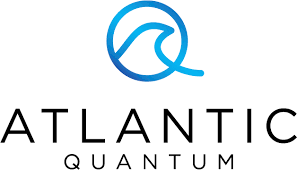
Atlantic Quantum is a private quantum computing company founded in 2022 with the ambitious goal of building a fault-tolerant quantum computer that can scale to the million-qubit regime. Based on superconducting technology, Atlantic Quantum is pioneering a hardware approach that centers on enhancing qubit coherence , a critical factor in reducing quantum errors and enabling large-scale, practical quantum computation.
Unlike most quantum processors today, which use transmon qubits, Atlantic Quantum is developing systems based on fluxonium qubits. These qubits operate at significantly lower frequencies, which translates into much longer coherence times and simpler control requirements. This design decision positions fluxonium as a superior candidate for scalable, fault-tolerant architectures. The company is focused not just on the qubits themselves, but on the entire hardware stack, including advanced control electronics that can maintain high gate fidelity and expand efficiently as systems grow in size.
The company’s hardware innovations are matched by an emphasis on extensibility. Atlantic Quantum’s architecture integrates noise-protected qubits with scalable control schemes, allowing their processors to advance toward real-world deployment. Their control systems are designed to handle the precision demands of quantum gates while being inherently adaptable for much larger systems in the future.
With a small but highly specialized team, Atlantic Quantum maintains partnerships with three organizations and one university. This reflects a strategy that balances independent innovation with academic and institutional collaboration, ensuring both technical rigor and practical relevance.
Read our most recent news on Atlantic Quantum.
15. Atom Computing

Atom Computing is a private quantum computing company founded in 2018 that builds scalable quantum systems using nuclear spin qubits formed from optically trapped neutral atoms. Atom Computing is one of the leaders in neutral atom quantum technology, offering long coherence times, high qubit fidelity, and a platform designed for scalability.
Atom Computing’s qubit control approach is wireless and laser-based, enabling precise manipulation of individual atoms that are spaced just a few microns apart. This architectural design allows the company to develop highly scalable quantum processors. Their first-generation system, Phoenix, is a 100-qubit gate-based machine with a universal quantum gate set and a remarkable coherence time of 21 seconds. In October 2023, Atom Computing announced a significant milestone: a 1,225-site atomic array, of which 1,180 sites were populated with working qubits, making it one of the largest quantum systems ever publicly disclosed.
The company’s technology is built to be programmable through standard industry platforms, making it compatible with a range of quantum development tools. Atom Computing supports a complete software stack, including libraries, quantum algorithms, and circuit-level access, and it also offers consulting services to help clients leverage its technology for specialized applications.
In a major international expansion, Atom Computing established its European headquarters in Copenhagen, Denmark, as part of a strategic partnership with the Danish government to advance quantum research and industry. Supported by a 70 million DKK investment from Denmark’s Ministry of Foreign Affairs and EIFO, this initiative aligns with Denmark’s National Strategy on Quantum Technology and the QIST collaboration agreement with the United States. The partnership is designed to bring advanced quantum technology and job creation to the region, strengthening ties between Europe and the U.S. in the quantum domain.
Atom Computing is also collaborating with Microsoft on building utility-scale, fault-tolerant quantum supercomputers. In September 2024, the two companies announced their joint development of quantum systems based on Atom’s neutral atom hardware. By November 2024, they revealed a commercial quantum system featuring 24 logical qubits , the largest number of entangled logical qubits ever demonstrated. Integrated into Microsoft’s Azure Quantum platform, the system achieves significantly lower error rates than physical qubits and is tailored for advanced use cases in chemistry, materials science, and AI. The commercial availability of this system is expected in 2025.
With a strong partner network that includes 9 enterprise users, 59 organizations, 4 research centers, 1 government, and 13 investors, Atom Computing is at the forefront of building practical, high-performance quantum computers.
Read our most recent news on Atom Computing.
16. BlueQubit

BlueQubit, founded in 2022, is a quantum software platform focused on quantum machine learning. It provides access to both classical emulators , supporting up to 34 qubits , and real quantum processing units. The platform is compatible with Qiskit, Cirq, and NVIDIA’s classical infrastructure, enabling flexible quantum-classical hybrid workflows.
The company is building a scalable, commercially viable ecosystem for quantum applications across industries. In 2023, the company was selected for DARPA’s IMPAQT program, where it is developing AI/ML algorithms optimized for NISQ-era quantum devices.
Read our most recent news on BlueQubit.
17. BosonQ Psi
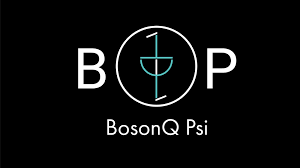
BosonQ Psi (BQP) is a private enterprise software company founded in 2020 that is leveraging quantum computing to transform simulation-based engineering. BQP is developing software-as-a-service (SaaS) platforms that combine quantum and classical computing to solve complex problems in Multiphysics and Computer-Aided Engineering (CAE). Their mission is to bring quantum-powered simulations to industries where speed, accuracy, and scalability are critical.
BQP’s exciting innovation is BQPhy™, the company’s first quantum-powered cloud simulation platform. Designed specifically for enterprise use, BQPhy integrates high-accuracy solvers built from the ground up by engineering and physics experts. The platform is engineered to deliver the quantum advantage across a wide range of applications including advanced materials, structural analysis, security modeling, thermal performance, and design optimization. It is tailored for use in sectors such as automotive, aerospace, energy, construction, pharmaceuticals, consumer goods, and electronics.
In its early version, BQPhy 0.1, the platform provided proof-of-concept simulations for enterprises seeking to explore quantum-enhanced engineering workflows. These projects demonstrated the practical utility of quantum computing in streamlining CAE processes that traditionally required vast classical computing resources.
A major milestone was reached in September 2024 when BosonQ Psi announced a breakthrough in computational fluid dynamics (CFD) simulation. Using a hybrid quantum-classical solver on the BQPhy platform, the company successfully simulated jet engine performance with just 30 logical qubits. In contrast, classical simulation of the same model would have required 19.2 million compute cores. This achievement marked a turning point for the engineering industry, showing that quantum computing can drastically reduce the resource burden and increase accuracy in large-scale simulations. The implications are especially significant for aerospace and other engineering fields where CFD plays a vital role.
BQP’s broader ecosystem includes five enterprise users, 41 partner organizations, three research centers, and nine investors, reflecting a growing interest in quantum-enhanced CAE tools. The company’s work also places it at the forefront of material science applications using quantum simulation, making it a pioneer in industry-specific quantum software development.
Read our most recent news on BosonQ Psi.
18. Classiq
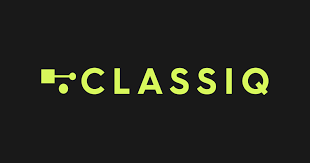
Classiq Technologies is a private quantum software company founded in 2018 that is redefining how quantum algorithms are developed. Classiq has created a powerful platform that allows developers to work at a higher level of abstraction than traditional gate-level quantum programming. This approach significantly accelerates the design of sophisticated quantum circuits and expands accessibility to quantum development for a broader range of users and enterprises.
Classiq’s core offering is a full-stack quantum software platform that enables users to intuitively design, execute, and analyze quantum algorithms. Instead of requiring intricate knowledge of quantum gates and hardware, the platform automates the creation of optimized quantum circuits from high-level functional models. Developers can then run these circuits seamlessly on cloud-accessible quantum hardware, including via Amazon Braket, AWS’s managed quantum computing service. This integration supports rapid experimentation and testing, making quantum development more practical and scalable.
The company has built strong partnerships to extend the platform’s capabilities. In November 2022, Classiq announced a collaboration with Q-CTRL to deliver an end-to-end development environment for quantum algorithms. This partnership focuses on solving high-impact computational problems in areas such as finance, logistics optimization, and quantum machine learning for drug discovery. By combining Classiq’s design automation tools with Q-CTRL’s quantum control infrastructure, the companies aim to bring useful quantum applications closer to reality.
Classiq maintains a broad and growing ecosystem, with 11 enterprise users, 30 organizational partners, four research centers, and backing from seven investors. It is also a member of leading quantum consortia including QInnovision, Le Lab Quantique, and Les Maisons du Quantique, reflecting its deep integration in both commercial and academic quantum communities.
With its emphasis on abstraction, automation, and accessibility, Classiq is playing a key role in maturing the quantum software stack and helping developers and businesses transition from experimentation to impactful quantum solutions.
Read our most recent news on Classiq.
19. Crypto Quantique

Crypto Quantique is a private cybersecurity company founded in 2016 that delivers next-generation IoT security solutions rooted in quantum technology. The company is addressing one of the most pressing challenges in the digital age: ensuring the security and scalability of billions of connected devices in an increasingly complex threat landscape.
At the heart of Crypto Quantique’s innovation is its proprietary QDID™ (Quantum-Driven Identity) technology. This breakthrough enables the generation of unique, unforgeable identities and cryptographic keys for IoT devices by harnessing quantum phenomena. Unlike conventional hardware security approaches, QDID™ provides built-in protection against both classical and future quantum computing threats, making it highly resilient and future-proof. The technology eliminates the need to store sensitive keys in memory, thereby reducing the attack surface and improving the overall robustness of device authentication and data encryption.
Complementing QDID™ is QuarkLink™, the company’s end-to-end IoT security management platform. QuarkLink™ integrates seamlessly with cloud services and automates critical processes such as device provisioning, secure onboarding, certificate management, and lifecycle monitoring. The platform operates under a zero-trust security model, ensuring that devices are continuously authenticated and authorized at every stage of deployment and use.
Crypto Quantique’s technology is designed to be hardware-agnostic and scalable, making it ideal for a wide array of sectors including smart manufacturing, healthcare, energy, and automotive. The company’s solutions are particularly relevant in the context of evolving quantum threats, offering enterprises a path toward long-term cybersecurity resilience.
Currently partnered with at least one major organization and supported by a growing intellectual property portfolio, Crypto Quantique stands at the intersection of quantum communications, cybersecurity, and IoT infrastructure.
Read our most recent news on Crypto Quantique.
20. Delft Circuits

Founded in 2016, Delft Circuits is a specialized hardware provider for the quantum computing industry, delivering critical infrastructure that enables the operation of quantum systems at cryogenic temperatures. Based in the Netherlands, the company focuses on solving one of quantum computing’s most persistent challenges: efficient and scalable input/output connectivity in ultra-cold environments.
Delft Circuits’ key innovation is Cri/oFlex®, its flagship product line. Cri/oFlex offers a groundbreaking cryogenic I/O solution that combines ultra-low thermal conductivity with high signal fidelity. Using superconducting circuits embedded in flexible substrates, Cri/oFlex enables quantum computers to scale while maintaining the low-temperature stability essential for quantum coherence. This technology reduces thermal load and wiring complexity, making it a key enabler for the next generation of large-scale quantum processors.
Delft Circuits works closely with both commercial and academic partners, maintaining collaborations with six organizations and two major research centers. The company is also actively involved in leading industry consortia, including Quantum Business Network (QBN), Quantum Delta NL, and QuIC, reflecting its integral role in the European quantum ecosystem.
What sets Delft Circuits apart is its dedication to hardware innovation at the component level , a crucial but often overlooked aspect of quantum system performance. By engineering robust, scalable cryogenic wiring solutions, Delft Circuits supports quantum technology developers around the world in accelerating their path to operational quantum machines.
Read our most recent news on Delft Circuits.
21. Diraq

Diraq is a full-stack quantum computing company founded in 2022, developing scalable, fault-tolerant quantum computers using silicon-based CMOS spin qubits. Headquartered in Sydney with a growing international presence, the company is pioneering a hardware approach that integrates quantum technology directly into conventional semiconductor manufacturing , using the same materials and processes that underpin today’s global chip industry. Diraq is combining deep physics expertise with the engineering precision of modern chip fabrication.
The core of Diraq’s strategy lies in its patented silicon CMOS qubit architecture. These qubits are the same size as standard transistors and can be manufactured on existing 300mm silicon wafers, allowing for seamless scaling using well-established semiconductor infrastructure. By aligning its qubit designs with traditional CMOS fabrication, Diraq reduces the complexity and cost barriers that typically slow the development of quantum systems. The company currently holds 28 patents and applications across major jurisdictions, protecting key innovations in qubit design, control, and integration.
Diraq’s recent technical milestones reflect its rapid progress. In June 2024, the company achieved 99.9% control accuracy for a silicon spin qubit fabricated by imec on a 300mm wafer using standard CMOS materials. This result set a new benchmark for foundry-based silicon spin qubits and was enabled by advanced control techniques such as real-time feedback, optimized initialization, pulse shaping, and rigorous characterization through gate set tomography and randomized benchmarking. Soon after, in August 2024, Diraq surpassed 99% fidelity in two-qubit gate operations on its CMOS platform, moving another step closer to scalable fault-tolerant architectures.
The company has also introduced a novel control method known as “qubit dressing”, announced in September 2024. This technique uses a global control field to synchronize multiple qubits, significantly reducing local interference and energy consumption , two critical hurdles to large-scale integration. In April 2025, Diraq demonstrated a violation of Bell’s inequality using gate-defined quantum dots, achieving a Bell signal of 2.731 with over 97% fidelity. Published in Nature Communications, this work validates the maturity of Diraq’s silicon-based quantum platform and marks a pivotal step in building reliable, high-performance quantum chips.
To support its growth, Diraq has opened a new commercial laboratory in Sydney, aimed at accelerating its development roadmap and strengthening collaborations with partners in Australia, the United States, and beyond. The company has active partnerships with six organizations, one university, one research center, and two governments, underscoring its position at the intersection of global quantum innovation and traditional chipmaking.
Diraq’s long-term vision is to move from prototype devices to nanometer-scale silicon quantum processor chips within the next decade , bridging the gap between cutting-edge quantum physics and mass-producible silicon technology.
Read our most recent news on Diraq.
22. EeroQ
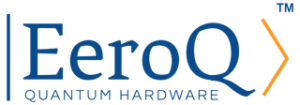
EeroQ is a private quantum computing company founded in 2016 that is pioneering a unique approach to building quantum processors using electrons floating on superfluid helium. The scaleup is developing a scalable quantum architecture that leverages the quantum motion and magnetic spin of trapped electrons , offering a radically different alternative to more common qubit technologies like superconductors or trapped ions.
EeroQ’s platform is its use of ultra-pure pools of superfluid helium to trap individual electrons. These electrons are held in place just above the helium surface, where they can be controlled and manipulated using electric and magnetic fields. Their quantum states , such as the ground state or various excited states , can be precisely measured and used to encode information. Because these electrons are isolated from solid-state materials, they experience fewer sources of noise, promising exceptionally long coherence times and low error rates.
The company’s hardware design is fully compatible with CMOS fabrication techniques, enabling seamless integration with existing semiconductor manufacturing processes. In February 2025, the company reached a significant milestone by developing new titanium nitride microwave resonators that greatly enhance qubit readout speed and accuracy. These resonators, which utilize kinetic inductance, were designed in collaboration with the University of Chicago and Stanford University and are aligned with circuit quantum electrodynamics (cQED) principles. Their performance has been experimentally validated with only a 2% deviation from theoretical predictions, marking a crucial step toward building fast, scalable electron-based quantum systems.
With partnerships that include one organization, two universities, one research center, and one investor, EeroQ is gradually building a supportive ecosystem around its novel quantum platform. The company’s work on spin-based qubit architectures represents a fresh direction in the quest for practical quantum computing, offering new possibilities for large-scale, high-performance quantum machines.
Read our most recent news on EeroQ.
23. ELEQtron

Founded in 2020 as a spin-off from the Chair of Quantum Optics at the University of Siegen, eleQtron is a private German company developing ion-trap quantum computers with a focus on commercial deployment. The company is building full-stack quantum systems and offering access to quantum computing as a service, while pioneering a distinctive technical approach designed to minimize operational complexity and noise.
What sets eleQtron apart is its innovative use of MAGIC , Magnetic Gradient-Induced Coupling , which enables the manipulation and entanglement of qubits without relying on laser light. This method significantly reduces interference between qubits and simplifies hardware control, making their systems potentially more scalable and robust than conventional trapped-ion architectures.
The company is currently executing an ambitious rollout plan. In 2024, it is deploying the QSea I demonstrator, followed by the HiQ pilot system, featuring a 30-qubit capacity. By 2027, eleQtron aims to deliver industrial-grade quantum computers through a partnership with Infineon, scaling up their technology for broader enterprise use.
eleQtron is a core member of Germany’s national quantum strategy. As part of a €208.5 million initiative funded by the German Aerospace Center (DLR), eleQtron is one of five sub-projects tasked with advancing ion-trap processor development over four years, alongside companies like NXP Semiconductors Germany and QUDORA Technologies. In addition to venture funding , including an $18 million investment from Quantonation in November 2022 , eleQtron has secured €9.1 million in non-dilutive funding from the German Federal Ministry of Education through the MAGIC App project, which supports the development of scalable and internationally competitive quantum computing systems.
With a talented team and active collaborations with five organizations, one university, two research centers, and three investors, eleQtron is a member of both the Quantum Business Network (QBN) and QuIC. Its work positions it as a rising leader in Europe’s ion-trap quantum ecosystem, focused on bringing practical and noise-resistant quantum computers to market.
Read our most recent news on ELEQtron.
24. evolutionQ

Founded in 2015, evolutionQ is a private cybersecurity company at the forefront of preparing enterprises for the quantum future. With a team of 11 to 50 employees, the company specializes in quantum-safe security solutions designed to protect critical infrastructure and data from the disruptive capabilities of quantum computing. As the threat of quantum-enabled attacks becomes increasingly real, evolutionQ provides the tools and strategic guidance organizations need to future-proof their cybersecurity posture.
evolutionQ helps businesses transition to secure quantum networks through a suite of technologies and advisory services. Among its flagship offerings is BasejumpQDN, a powerful software layer for deploying and managing Quantum Delivery Networks (QDN), integrating advanced quantum-safe technologies such as Quantum Key Distribution (QKD). This solution is engineered for efficiency, low latency, and adaptive network stability, making it a critical tool for both commercial and government clients.
The company also offers BasejumpSIM, a simulation tool that models quantum network configurations, allowing organizations to assess performance, cost, and resilience before deployment. To support strategy and education, evolutionQ provides a range of consulting services , including Quantum Risk Assessments, Quantum Briefings, and Quantum Roadmap development , helping technology leaders understand and navigate the complex transition to quantum-safe infrastructures.
In a major strategic partnership, evolutionQ has teamed up with SandboxAQ to expand the reach and impact of its solutions. As part of the collaboration, SandboxAQ promotes BasejumpQDN while evolutionQ integrates and distributes SandboxAQ’s Security Suite. This partnership leverages both companies’ strengths: evolutionQ’s technical leadership and academic ties , particularly with the University of Waterloo’s Institute for Quantum Computing , and SandboxAQ’s product, business, and go-to-market capabilities.
With its blend of software products, consulting expertise, and deep roots in quantum research, evolutionQ plays a vital role in the emerging quantum security landscape. The company is working closely with enterprise and institutional partners to ensure cybersecurity systems are not only current but resilient against the quantum challenges of tomorrow.
Read our most recent news on evolutionQ.
25. Horizon Quantum Computing
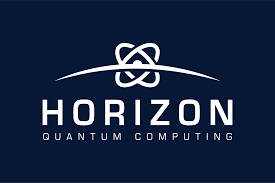
Horizon Quantum Computing is a private company founded in 2018 that is building a new generation of software tools to accelerate and simplify the development of quantum applications. Horizon is focused on removing the complexity of quantum programming by offering a full-stack development environment , from high-level algorithm design to low-level physical implementation , allowing software developers to harness the power of quantum computing without deep expertise in quantum mechanics.
Horizon’s approach is a proprietary compiler stack that bridges classical and quantum computing paradigms. This compiler infrastructure is designed to translate conventional algorithms into optimized quantum circuits, effectively democratizing access to quantum computing for industries ranging from finance and pharmaceuticals to logistics and engineering. Horizon’s flagship software stack, Triple Alpha, is being integrated into a first-of-its-kind quantum computing testbed capable of hosting multiple quantum processors.
The testbed will initially feature Rigetti Computing’s 9-qubit Novera quantum processor and Quantum Machines’ OPX1000 quantum controller, enabling developers to test and validate Horizon’s end-to-end software solutions in real hardware environments. This integrated platform will provide valuable insights into how different quantum devices perform under a unified software layer, enhancing interoperability and speeding up commercial adoption.
In November 2024, Horizon expanded its global presence by opening a European office in Ireland, further anchoring its role as a leader in quantum software innovation. This move reflects the company’s growing network of international partnerships and its commitment to serving the needs of enterprises across both Asia and Europe.
Currently, Horizon works with five enterprise users, 42 partner organizations, three research centers, and is backed by nine investors. It is also a member of the Southeast Asia Quantum Industry Association, underscoring its influential position within the regional quantum ecosystem.
With its deep focus on application development, compiler technology, and hardware-software integration, Horizon Quantum Computing is pushing the boundaries of what’s possible in the quantum software stack.
Read our most recent news on Horizon Quantum Computing.
26. HQS Quantum Simulations
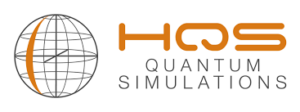
HQS Quantum Simulations is a private company founded in 2017 that develops advanced quantum software tools for the chemical industry and academic research. The company provides state-of-the-art quantum simulation methods tailored to materials science, enabling clients to design and discover new materials using cutting-edge computational techniques. HQS combines deep quantum expertise with practical applications, serving industries where molecular behavior and material properties play a critical role in innovation.
Headquartered in Germany, HQS focuses primarily on quantum algorithms for molecular simulations, with applications ranging from methane behavior and OLED light emission to molecular diffusion in liquids. Their client portfolio includes global leaders such as BASF and Bosch, highlighting the commercial value of HQS’s domain-specific quantum solutions. In addition to their quantum tools, the company also develops classical versions of their algorithms that can be executed on conventional high-performance computing infrastructure, making their technology accessible even before full-scale quantum hardware becomes mainstream.
Over the years, HQS has contributed significantly to the quantum software ecosystem. They introduced an open-source tool in 2018 for porting code from ProjectQ to Cirq, followed by the launch of the Quantum Assisted Design toolbox in 2020 and qoqo, a quantum circuit representation library, in 2021. These tools reflect HQS’s commitment to making quantum technologies both developer-friendly and application-specific.
In May 2024, HQS released HQStage, a modular cloud-based toolkit designed to streamline quantum simulation workflows for researchers and developers. HQStage is structured into four functional areas , Easy Input, Simulation, Model Analysis, and Quantum Computing , and includes purpose-built apps that make quantum simulations more accessible. Notably, the HQS Qorrelator App enables users to simulate spectroscopy on quantum hardware, including the calculation of Nuclear Magnetic Resonance (NMR) spectra. Another module, the HQS Noise App, is designed to explore the behavior of open quantum systems, allowing users to test how noise affects quantum dynamics in realistic environments.
HQS Quantum Simulations is a member of the QuantumBW and PlanQK consortia and maintains partnerships with two enterprise users and one organizational partner. With a blend of software products, consulting services, and research contributions, the company is helping to bridge the gap between theoretical quantum algorithms and real-world materials innovation.
Read our most recent news on HQS Quantum Simulations.
27. InfinityQ
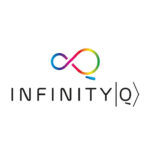
infinityQ is a private Canadian technology company founded in 2020 and based in Montreal, specializing in quantum-inspired analog computing. infinityQ occupies a unique space in the quantum landscape , offering hardware that draws on the mathematics and behavior of quantum systems without being a conventional quantum computer in the strictest sense. Their technology is designed to tackle real-world computational challenges, particularly in optimization, using analog principles implemented on CMOS-based silicon chips.
Unlike traditional digital quantum computers, infinityQ’s approach is rooted in quantum analogies. Their devices simulate the dynamics of atomic systems using artificial atoms that are mathematically equivalent to those found in a quantum system known as the lambda configuration. In this configuration, two ground states are coupled to a common excited state through laser interactions , mirrored in infinityQ’s architecture by systems that collectively behave like ensembles of quantum atoms. This architecture enables the hardware to process and solve complex optimization problems efficiently, using principles analogous to quantum coherence and interference.
The company unveiled its core product, the infinityQube, in April 2021. This cloud-based platform is specifically designed to address optimization challenges, offering businesses and researchers access to quantum-inspired computing without the overhead and fragility of actual quantum hardware. The infinityQube provides an alternative route to quantum advantage, enabling real-time applications that benefit from analog processing speed and energy efficiency.
infinityQ is a member of major quantum and emerging tech consortia including QInnovision and the Quantum Economic Development Consortium (QED-C). While currently supported by one primary investor, the company’s positioning reflects a growing interest in hybrid and alternative computing paradigms that straddle the gap between classical and quantum domains.
Read our most recent news on InfinityQ.
28. Infleqtion
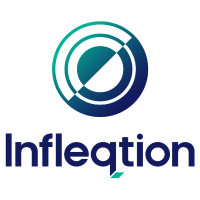
Infleqtion is a leading quantum technology company, formerly known as ColdQuanta, that develops quantum computers, sensors, and communication systems using neutral atom technology. Founded in 2007, Infleqtion integrates hardware, software, and advanced quantum platforms to serve both scientific and commercial markets.
Their flagship quantum computer, Hilbert, operates at room temperature and is designed for high fidelity, long coherence times, and scalable architecture. Complementing it is Superstaq, a cloud-accessible quantum software platform that enhances performance across various hardware backends, and Oqtant, which enables cloud-based experimentation with quantum matter.
Infleqtion’s long-term roadmap, Sqorpius, aims to scale from 2 to over 100 logical qubits by 2028, using up to 40,000 physical qubits. The company has also demonstrated industry milestones, such as high-fidelity gates (up to 99.73%) and the use of logical qubits for materials science applications via its Sqale system and CUDA-Q integration.
Beyond computing, Infleqtion produces commercial-grade atomic clocks like Tiqker, and recently won UK funding to build its first optical atomic clock. Their miniMOT V2 system and fiber collimation optics (with Thorlabs) further support quantum sensing and lab-based development.
With over 90 global partnerships , including governments, enterprises, and research institutions , and acquisitions such as Super.Tech, SiNoptiq, and Morton Photonics, Infleqtion is rapidly scaling its influence across the quantum ecosystem.
Read our most recent news on Infleqtion.
29. IQM

IQM Quantum Computers, based in Finland and founded in 2018, is building superconducting quantum hardware with a strong emphasis on on-premise systems for research institutions, supercomputing centres, and governments. Unlike cloud-first players, IQM is creating tailored, full-stack quantum machines with a focus on speed, fidelity, and specialization.
Its flagship architectures , Star and Crystal , enable advanced error correction and high connectivity, with recent benchmarks showing 99.9% 2-qubit gate fidelity and logical fidelities exceeding 96%. The company’s roadmap targets fault-tolerant quantum computing by 2030, scaling toward a million qubits.
IQM’s products include the education-focused IQM Spark (5-qubit system), the enterprise-grade IQM Radiance (targeting 150 qubits), and IQM Garnet, a 20-qubit processor now live on Amazon Braket. IQM has delivered 30 full-stack quantum systems globally, with six already installed. It also powers Germany’s Q-Exa hybrid quantum supercomputer and will soon deliver a 24-qubit system to the Czech Republic’s IT4Innovations Centre, linked to the EuroHPC supercomputer Karolina.
Backed by €128 million in climate-focused funding and partnerships with over 70 organizations, IQM is positioning itself as a European quantum hardware leader.
Read our most recent news on IQM.
30. KETS Quantum Security

KETS Quantum Security, founded in 2016, is a UK-based private company developing cutting-edge technologies for quantum-secure communication. KETS focuses on delivering practical, compact solutions using integrated photonics to power next-generation cybersecurity systems.
Their offerings include on-chip quantum key distribution (QKD) and quantum random number generation (QRNG) , two core components for building secure communication networks resistant to quantum-era threats. By leveraging integrated photonic circuits, KETS achieves high levels of miniaturization and functionality, enabling deployment in space-constrained and high-performance environments.
KETS is a member of major consortia including UKQuantum and QuIC, reflecting its key role in the European and UK quantum ecosystems.
Read our most recent news on KETS Quantum Security.
31. Kiutra

Kiutra, a private company founded in 2018, is advancing cryogenic technology through magnetic cooling systems specifically designed for quantum research, detector applications, and advanced materials science. Based in Germany, Kiutra addresses the foundational challenge of maintaining ultra-low temperatures required for quantum experiments and hardware development , without relying on liquid helium.
Rather than traditional cooling methods, Kiutra builds its systems around closed-cycle cryocoolers, capable of achieving base temperatures below 4 K. These platforms can be equipped with up to four adiabatic demagnetization refrigeration (ADR) units, enabling single-shot cooling below 100 mK and continuous, cryogen-free cooling down to 300 mK. Their flagship L-Type Rapid cryostat integrates a puck-based, top-loading sample exchange mechanism, allowing users to prepare and insert samples without warming up the entire system. A sample can be cooled to its base temperature in under three hours , a significant advantage in fast-paced research environments.
Wiring and connectivity options are highly customizable, with support for up to 4 RF lines and 40 DC connections, including low-resistance pathways for driving piezoelectric positioners. This flexibility makes Kiutra’s systems suitable for a wide range of experimental setups and quantum devices.
As a member of the Quantum Business Network (QBN), Kiutra is part of Europe’s growing ecosystem of quantum hardware suppliers. Its cryostats are increasingly seen as enabling infrastructure for labs and companies looking to develop or test quantum components in stable, ultra-cold conditions.
Read our most recent news on Kiutra.
32. Multiverse Computing
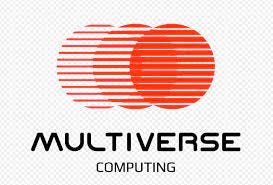
Multiverse Computing, founded in 2019, is a private software company blending quantum computing and artificial intelligence to deliver powerful, application-specific solutions , particularly in finance, energy, and advanced analytics. With over 100 employees and global reach, the company provides quantum-enhanced SaaS tools that help organizations solve complex optimization and simulation problems using the most effective algorithms available, whether classical, quantum, or hybrid.
Positioned as both a software vendor and consulting partner, Multiverse tailors quantum-ready solutions to each client’s needs. Its flagship tools include CompactifAI, an energy-efficient AI model compression platform, and algorithms for predictive maintenance, high-frequency trading, and risk modeling. These offerings have earned the company recognition, including being named a Gartner Cool Vendor in 2022.
Multiverse has also made key academic and industry contributions, including a 2022 breakthrough in quantum mathematical analysis , demonstrating how quantum computers can solve derivatives, PDEs, and perform Fourier analysis. This pioneering work was detailed in their paper, “Variational Quantum Continuous Optimization.”
Backed by major investors and governments, Multiverse closed a Series A round in December 2024 with support from CDP Venture Capital and Italian firms like Edison, Baker Hughes, and BNP Paribas. In March 2025, the Spanish government committed a €67 million investment through SETT to expand Multiverse’s work in energy-efficient AI, particularly in compressing large language models by up to 90%.
The company maintains partnerships with 16 enterprise users, 52 organizations, and 7 research centers, and is an active member of consortia such as Le Lab Quantique, UKQuantum, and Les Maisons du Quantique.
Read our most recent news on Multiverse Computing.
33. Nord Quantique
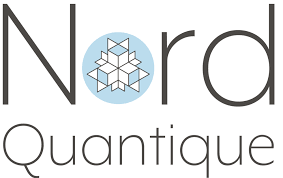
Nord Quantique, founded in 2022 and based in Canada, is a private quantum computing company developing superconducting circuits with a built-in focus on error mitigation. Its core innovation lies in the use of bosonic codes, which enable error suppression directly on individual qubits , without relying on the large-scale redundancy typically required by quantum error correction. This allows Nord Quantique to pursue fault-tolerant quantum computing with far fewer physical qubits, offering a potentially faster and more resource-efficient path to scalable systems.
The company has already demonstrated a 14% reduction in single-qubit errors without additional overhead, showcasing the potential of its superconducting hardware to preserve quantum information more effectively. Nord Quantique’s approach could shrink the scale of necessary hardware from millions to just hundreds of qubits for fault tolerance.
Alongside its core R&D, Nord Quantique is leading the Quantum Simulations for Materials Discovery project, which focuses on building a platform for simulating material properties for industrial applications. To support chip production and growth, the company partnered in October 2024 with C2MI in Quebec and NY CREATES in New York, securing a robust supply chain for its superconducting and CMOS-based qubit fabrication.
Read our most recent news on Nord Quantique.
34. ORCA Computing
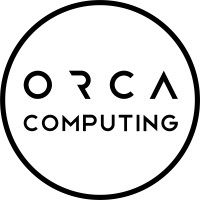
ORCA Computing, founded in 2019, is a UK-based private company developing modular, room-temperature photonic quantum computers designed to integrate easily with existing high-performance computing (HPC) and data center environments. ORCA stands out in the quantum space for leveraging quantum memory to control and buffer photons , solving one of the core challenges of photonic qubit generation.
ORCA’s latest system, PT-2, launched in October 2024, is a commercial-grade photonic quantum computer designed for practical applications in fields like machine learning, pharmaceuticals, and materials science. Compatible with NVIDIA’s CUDA-Q platform and powered by a chip from Sparrow Quantum, the PT-2 is already being used in molecular design, vaccine development, and generative AI model enhancement. Its modular structure and compatibility with industry standards mark it as a plug-and-play solution for organizations seeking to explore hybrid quantum-classical workloads , without the need for cryogenics or specialized infrastructure.
The company’s technology is underpinned by quantum memory buffering, which enables more reliable qubit generation and processing, and supports high photon-loss tolerance. Their research shows how GHZ-state measurements can enable fault-tolerant operations even in noisy environments , paving the way for scalable, loss-resistant photonic architectures.
ORCA is also deeply embedded in the UK’s national quantum strategy. In 2022, it partnered with the UK Ministry of Defence to explore photonic quantum computing for defense applications. The company is further developing a hybrid quantum testbed at the UK National Quantum Computing Centre (NQCC), which includes GPU integration to explore quantum-enhanced machine learning and neural networks.
A member of UKQuantum, ORCA maintains a growing network of partners, including eight enterprise users, two universities, and multiple research centers and government bodies.
Read our most recent news on ORCA Computing.
35. Oxford Quantum Circuits (OQC)
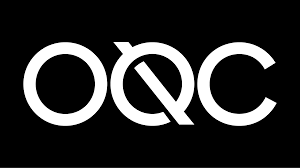
Oxford Quantum Circuits (OQC), founded in 2017, is a UK-based quantum computing company offering Quantum Computing as-a-Service (QCaaS) built on its proprietary Coaxmon superconducting architecture. The Coaxmon’s 3D design enables scalable, low-noise, high-fidelity quantum operations with long coherence times and efficient gate execution , making it well-suited for commercial and scientific applications alike.
OQC’s cloud-accessible platforms, including Lucy and the enterprise-grade Toshiko (a 32-qubit system deployed in commercial data centers), provide secure, hybrid quantum-classical computing. Customers in sectors like finance, pharma, defence, and energy can run circuits natively or via OQC’s optimized compiler. Collaborations with AWS, Equinix, NVIDIA, and McKinsey highlight its enterprise reach.
In 2025, OQC launched the Architect platform for quantum education and co-published research achieving 99.8% two-qubit fidelity in just 25 nanoseconds. Additional milestones include a 98% cloud uptime, efficient logical qubit encoding, and ongoing work on quantum chemistry and quantum cryptography.
Read our most recent news on Oxford Quantum Circuits.
36. ParityQC

ParityQC, founded in 2019, is an Austrian quantum computing company specializing in quantum architectures, compilers, and operating systems designed to simplify and scale quantum hardware. Rather than building quantum computers directly, ParityQC delivers blueprints and instruction sets for both digital and analog quantum systems, enabling hardware partners to maximize qubit efficiency and scalability , without the need for SWAP gates.
Their architecture is platform-agnostic, fully parallelizable, and designed to translate complex problems , particularly in optimization and logistics , into hardware-executable form with minimal overhead. ParityQC’s compiler adapts flexibly to diverse quantum technologies, helping hardware developers unlock performance from existing qubit layouts.
ParityQC plays a key role in several high-profile projects. It is contributing software and architecture to a German Aerospace Center (DLR) initiative with planqc and Menlo Systems to develop a scalable neutral-atom quantum computer. It was also awarded a €29 million DLR contract to advance molecular simulation methods on quantum devices.
In September 2024, ParityQC joined forces with Quantum Brilliance under a €35 million contract from Germany’s Cyber Agency to co-develop mobile quantum computers for defense and civilian use. The resulting “Diamonds-MQC” system uses nitrogen vacancy (NV) centers in diamonds, offering room-temperature operation and long coherence times, with ParityQC providing the custom quantum architecture.
With partnerships spanning eight organizations, one university, and two research centers, ParityQC continues to shape the foundational layers of future quantum computing platforms.
Read our most recent news on ParityQC.
37. PASQAL

PASQAL, founded in 2019, builds quantum computers based on neutral atoms, using optical tweezers to control and manipulate qubits with lasers. Its technology stems from research at Institut d’Optique and enables large-scale quantum simulations, with systems operating at over 100 qubits and aiming for 10,000 by 2026.
PASQAL’s QPUs are accessible via the PASQAL Cloud, programmable through its open-source framework Pulser, and emulated by EMU-TN, a Tensor Network simulator. In addition to its quantum hardware, the company offers Quantum Discovery, a platform for enterprise engagement and education, and has partnered with GENCI, Google Cloud, and IBM to expand access to hybrid quantum-classical workflows.
Recent research includes advances in generative modeling for solving stochastic differential equations, drug discovery using hybrid algorithms, and a record-setting experiment involving 1,110+ trapped atoms. In 2024, PASQAL delivered Europe’s first advanced QPU for HPC integration and opened its North American manufacturing facility in Québec, supported by $15M from Investissement Québec.
With backing from 11 investors and collaborations with 18 enterprise users, PASQAL is scaling globally as a leader in analog quantum computing.
Read our most recent news on PASQAL.
38. Photonic Inc.

Photonic Inc, founded in 2016, is a private Canadian company building silicon-based quantum processors with a focus on scalability, networking, and fault tolerance. Their core innovation lies in using individual spin qubits in silicon, paired with photonic links to enable entanglement both within chips and across quantum modules , laying the groundwork for a global quantum internet.
Their 2cm silicon chips are designed to hold over a million qubits, and the company is developing the full stack: processors, compilers, middleware, and quantum algorithms , optimized initially for quantum molecular docking in drug discovery, one of the first applications in their Quantum Computing as a Service (QCaaS) model.
In partnership with Microsoft, Photonic is building a multi-stage quantum network architecture. This includes delivering entanglement via telecom fiber (Stage 1), developing a novel quantum repeater (Stage 2), and enabling full-scale, fault-tolerant quantum networking via Azure (Stage 3). In May 2024, they successfully demonstrated distributed entanglement between modules , an essential milestone toward large-scale quantum networking.
In February 2025, Photonic launched SHYPS, a new class of QLDPC codes that improve quantum error correction efficiency by requiring up to 20× fewer qubits. This leap forward is supported by their Entanglement-First hardware design, which also underpins ongoing work with Telus on secure quantum communication.
With strategic efforts in quantum hardware, networking, and error correction, Photonic is positioning itself as a foundational player in building a scalable, connected quantum future.
Read our most recent news on Photonic Inc.
39. PQShield

PQShield, founded in 2018, is a UK-based cybersecurity company specializing in post-quantum cryptography (PQC) , developing hardware and software solutions to protect digital systems from future quantum threats. PQShield focuses on securing the full technology supply chain, offering tools that are standards-aligned and ready for real-world deployment.
Their product suite includes the PQSoC toolkit for system-on-chip development, PQSDK for integrating post-quantum algorithms with OpenSSL, and PQCryptoLib, a hybrid cryptographic library compatible with TLS 1.3 and FIPS 140–3 validation. They also offer lattice- and hash-based solutions under the PQPlatform and PQPerform lines, supporting high-throughput, quantum-safe cryptography across applications like messaging, VPNs, IoT, and public key infrastructure.
In September 2024, PQShield launched the world’s first functional silicon test chip for PQC, enabling real-world evaluation of power, performance, and side-channel resistance under the upcoming NIST PQC standards. The same month, they partnered with Quside to integrate quantum random number generation into PQShield’s SDK, bringing post-quantum TLS 1.3 and PKI to OpenSSL 3.2+ with built-in entropy monitoring.
Trusted by enterprise and defense partners including Microchip Technology and Collins Aerospace, PQShield is actively shaping the future of cryptographic resilience.
Read our most recent news on PQShield.
40. ProteinQure
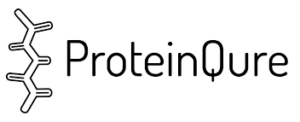
ProteinQure, founded in 2017 and based in Toronto, is a private biotech startup combining quantum computing, machine learning, and molecular simulations to accelerate the design of novel protein-based therapies. The company focuses on in silico drug discovery, particularly targeting exotic peptides and protein folding.
Their core platform, ProteinStudio, integrates biophysical models, statistical methods, and quantum algorithms to explore vast protein design spaces. By simulating protein folding at a high level of precision, ProteinQure aims to streamline therapeutic development and enable the creation of next-generation biologics.
The company is a member of Quantum Industry Canada and partners with enterprise users in pharma and life sciences.
Read our most recent news on ProteinQure.
41. QAISEC

QAISEC, founded in 2019 in Bulgaria, provides cryptographic solutions at the intersection of quantum encryption and artificial intelligence.
The company focuses on AI, finance, and telecommunications, beginning with security audits before deploying quantum-secure tools , such as encryption systems using quantum random number generators. It is also developing a post-quantum cryptography (PQC)-based blockchain platform.
Read our most recent news on QAISEC.
42. PsiQuantum
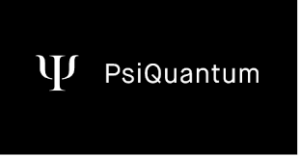
PsiQuantum, founded in 2016, is developing a fault-tolerant, utility-scale quantum computer using silicon photonic qubits. Their approach , encoding quantum information in single photons routed through optical circuits , enables scalable entanglement and high-fidelity gate operations. Unlike NISQ systems, PsiQuantum is committed to fully error-corrected quantum computing, aiming for a 1 million-qubit machine capable of tackling real-world commercial problems.
Key technologies include ultra-low-loss waveguides, high-efficiency photon detectors, optical switches, and dynamic error mitigation techniques like active volume compilation and dynamic bias arrangement, which enhance run-time and fault tolerance.
With volume manufacturing underway, PsiQuantum is supported by major partnerships and public investments, including $940M from the Australian government and $500M from the State of Illinois, where it will anchor the new Illinois Quantum and Microelectronics Park. The company has also partnered with Microsoft, the US DOE, and Griffith University to scale its cryogenic infrastructure, software stack, and testing labs.
PsiQuantum’s photonics-based platform offers a clear path to global quantum networking, drug discovery, and simulation-heavy applications , built not in a lab, but for the cloud and industry from day one.
Read our most recent news on PsiQuantum.
43. Q-CTRL
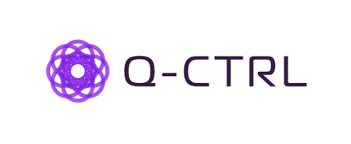
Q-CTRL was founded in 2017 and is a quantum infrastructure software company that focuses on controlling and stabilizing quantum systems. Its core mission is to improve the reliability of quantum computers through advanced error suppression and performance optimization.
The company’s flagship products include BOULDER OPAL, a Python-based control suite that delivers robust quantum operations, and Fire Opal, a performance-management platform now integrated with quantum hardware from IBM, Rigetti, Oxford Quantum Circuits, and Diraq. These integrations allow for significant reductions in error rates and enable the efficient execution of complex algorithms like QFT and QAOA.
Q-CTRL Embedded, another major offering, brings automated, hardware-level error suppression into quantum platforms. It has been incorporated into IBM Quantum’s pay-as-you-go model and now features in no-code/API workflows via QCentroid, improving quantum algorithm success rates up to 1000x.
In November 2024, Q-CTRL revealed a hybrid error mitigation strategy, combining early-stage quantum error correction with deterministic suppression, which allowed them to produce a 75-qubit GHZ state with over 85% fidelity , setting a new benchmark in error-resilient quantum computing.
In addition to quantum computing, Q-CTRL is active in quantum sensing, and its partnerships span academia, defense, and commercial sectors. With a growing international footprint, Q-CTRL is emerging as a foundational player in the global quantum ecosystem.
Read our most recent news on Q-CTRL.
44. QC Ware
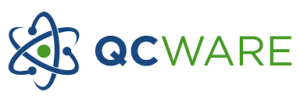
QC Ware, founded in 2014, develops enterprise-focused quantum software solutions, with a strong emphasis on cloud-based platforms for chemistry, optimization, and finance. The company’s standout product is Promethium, a quantum chemistry toolset designed to accelerate the simulation of molecular and material systems.
Promethium runs on AWS Cloud and leverages NVIDIA’s H100 and A100 GPUs to perform high-precision computations far faster than traditional methods. It enables simulations of ~100-atom systems in seconds and scales to systems of ~2,000 atoms in a fraction of the time previously required , making it highly suitable for applications in drug discovery, material science, and chemicals.
QC Ware operates in close collaboration with industry partners and investors and is an active member of QED-C, Le Lab Quantique, and Les Maisons du Quantique, positioning itself at the forefront of applied quantum development for real-world use cases.
Read our most recent news on QC Ware.
45. Qruise

Founded in 2021, Qruise is a spinoff from Forschungszentrum Jülich and develops machine learning software to support scientists and researchers in the calibration, optimization, and characterization of quantum devices , particularly noisy intermediate-scale quantum (NISQ) systems. The company’s ML-powered tools automate and accelerate tasks typically requiring deep domain expertise, reducing calibration time and improving device fidelity.
Their flagship Qruise Toolkit provides a suite of optimizers, simulators, and ML components for creating digital twins of quantum systems. These digital models allow researchers to simulate and fine-tune hardware with high accuracy. Qruise also partners with leading hardware firms like Quantum Machines and Zurich Instruments, integrating its software with advanced control systems.
Qruise is involved in the Open Architecture Quantum (OAQ) Testbed project and is a member of UKQuantum, contributing to the development of modular, interoperable quantum systems.
Read our most recent news on Qruise.
46. QSimulate

QSimulate, founded in 2018, develops cloud-based quantum simulation tools for molecular modeling in healthcare and chemistry. Their platform enables pharmaceutical and chemical companies to accelerate R&D through time-efficient, high-accuracy simulations.
Specializing in quantum molecular simulation, QSimulate collaborates with leading partners including Amgen, Google AI Quantum Lab, and the Amazon Quantum Solutions Lab to advance computational methods for drug discovery and materials science.
Read our most recent news on QSimulate.
47. Quandela

Quandela, founded in 2017 in France, develops scalable, modular photonic quantum computers, accessible via cloud or on-premise. Its systems are built around solid-state quantum light sources and programmable photonic qubits, with applications in cryptography, drug discovery, quantum machine learning, and optimization.
The company’s milestones include the 2023 launch of MosaiQ, its first quantum computer installed at an OVHcloud datacenter, and Belenos, a 12-qubit system released in 2025 that delivers 4,000× the power of its predecessor. Belenos is already used commercially across 30 countries. Quandela also operates Quandela Cloud 2.0, featuring its Perceval software for algorithm development.
In 2024–2025, Quandela expanded to North America, opened a new factory, and introduced a hybrid architecture reducing the number of components per logical qubit by up to 100,000×. Their roadmap targets fault-tolerant quantum computing by 2030, with logical qubit delivery projected in 2025 and a 40-qubit Canopus system in development.
Read our most recent news on Quandela.
48. QuantFi

QuantFi is a quantum software company focused on financial applications, including portfolio optimization, trend detection, risk management, and derivatives pricing. Founded in 2019 and based in France, the company operates with a small team and collaborates closely with academic and research institutions.
QuantFi is known for its quantum emulator, QIWI, which integrates waveform-level and circuit-level simulations for high-accuracy financial modeling. It joined the IBM Quantum network in 2020 and is an active member of Le Lab Quantique and QuIC.
The company’s U.S. subsidiary, Quantistry, extends its expertise into chemical simulation, developing tools for quantum and classical modeling techniques in computational chemistry.
Read our most recent news on QuantFi.
49. Quantistry

Quantistry, founded in 2018, develops a cloud-based platform for advanced chemical simulations, combining quantum computing, molecular dynamics, and machine learning. Tailored for the chemical and pharmaceutical sectors, the platform accelerates R&D in materials science and drug discovery by enabling high-precision, web-based simulations.
Their technology integrates AI and quantum techniques to provide scalable, next-generation simulation tools for enterprise and research users.
Read our most recent news on Quantistry.
50. Quantinuum

Quantinuum is a vertically integrated quantum-computing company combining trapped-ion hardware (H-Series systems) with a full software stack and application toolkits. The H-Series emphasizes high-fidelity gates, all-to-all connectivity via ion shuttling, mid-circuit measurement, and native error-mitigation and EPR-pair workflows. Access is offered via major clouds and direct programs for enterprise and national labs.
On the software side, Quantinuum maintains TKET (hardware-agnostic compiler) and domain toolkits for chemistry and materials (e.g., InQuanto), optimization and ML frameworks, and quantum-safe offerings (e.g., Quantum Origin key generation). This stack is designed to compress algorithm development cycles: prototype in simulation, compile to hardware with aggressive circuit optimization, and iterate with calibration feedback.
Quantinuum’s roadmap prioritizes scaling logical performance rather than raw qubit counts: improving two-qubit fidelities, faster transport schedules, and modular system integration. Commercial posture: hardware access + software subscriptions + co-development in sectors such as pharma, finance, and advanced materials.
Read our most recent news on Quantinuum.
51. Quantum Base

Quantum Base, founded in 2014, is a UK-based company specializing in quantum-secure authentication technologies and quantum random number generators (QRNGs). Operating in the nano-security space, the company develops hardware solutions to combat counterfeiting and ensure digital trust.
Their flagship product, Q-ID Optical, uses quantum-based Physically Unclonable Functions (PUFs) made from graphene. These optically readable tags contain atomic-scale imperfections that are impossible to replicate, enabling ultra-secure identity verification and theft protection. The tags can also be dynamically activated or deactivated, offering enhanced control and flexibility.
Read our most recent news on Quantum Base.
52. Quantum Brilliance
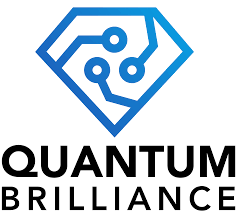
Quantum Brilliance, founded in 2019, develops quantum computing systems based on nitrogen-vacancy (NV) centers in synthetic diamond. Unlike traditional quantum platforms, its diamond-based processors operate at room temperature and require only electrical power , removing the need for cryogenics or vacuum systems.
The company has built a compact two-qubit quantum accelerator designed for deployment in conventional computing environments. Their Qristal SDK enables the development of hybrid classical-quantum applications tailored for edge computing, data centers, and HPC clusters. Use cases span from robotics and satellites to computational chemistry.
Quantum Brilliance’s technology is currently integrated with Setonix, the Pawsey Supercomputing Centre’s flagship HPC system, supporting co-processing tasks. In 2024, the company partnered with ParityQC and Germany’s Cyber Agency on the €35 million Diamonds-MQC project to build mobile, energy-efficient quantum computers for defense and civilian applications.
Read our most recent news on Quantum Brilliance.
53. Quantum Circuits
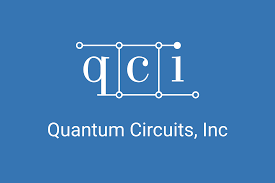
Quantum Circuits, Inc. (QCI), founded in 2015 by Yale University physicists Michel Devoret, Luigi Frunzio, and Robert Schoelkopf, is building a full-stack quantum computing platform based on superconducting circuits. Known for pioneering work in quantum error correction and the quantum bus, QCI focuses on scalable, modular architectures.
In 2024, the company introduced the Dual-Rail Qubit (DRQ), which uses two resonators sharing a photon to encode information. This design significantly reduces noise, achieves SPAM fidelities of 99.99%, and enables built-in error detection. QCI also launched its Aqumen Seeker system, featuring eight DRQs in a nearest-neighbor layout, allowing real-time error correction and development of fault-tolerant protocols.
QCI’s software platform includes a quantum simulator, SDK, and cloud portal, giving developers tools to prototype algorithms and manage qubit performance.
Read our most recent news on Quantum Circuits.
54. Quantum Dice

Quantum Dice, founded in 2020, develops advanced quantum random number generators (QRNGs) to enable true randomness for secure encryption applications. The company’s core innovation is its patented DISC™ protocol, which underpins its product line.
Its flagship devices include the APEX QRNG QD-2100, built for high-speed environments like data centers with throughput up to 7.5 Gbps; the VERTEX QRNG QD-1100, optimized for compact cybersecurity hardware; and the Zenith QRNG, deployed in the SpeQtral-1 satellite for secure quantum communications in space, offering up to 1 Gbps of random bit generation.
Read our most recent news on Quantum Dice.
55. Quantum Machines
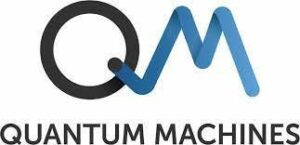
Founded in 2018, Quantum Machines builds advanced control and orchestration systems for quantum computers. Its flagship platform, the OPX series, delivers ultra-low-latency, high-precision quantum control, now scaled with the high-density OPX1000 controller. The company’s Octave module automates frequency conversions and calibrations, while its QCage.64 and QBoard-II hardware streamline chip integration with superconducting processors.
Quantum Machines also runs the Israeli Quantum Computing Center at Tel Aviv University and leads initiatives like QUAlibrate, an open-source calibration framework. With products adopted by top labs and HPC centers, the company is positioning itself as a foundational player in scalable quantum system integration.
Read our most recent news on Quantum Machines
56. Quantum Motion

Quantum Motion was founded in 2017 and is developing scalable quantum computing systems based on silicon and CMOS-compatible processes. By leveraging established semiconductor fabrication methods, the company aims to build high-density qubit architectures that can scale to millions of qubits.
Their latest chip, Bloomsbury, manufactured using standard mass-production techniques, features thousands of quantum dots acting as qubits on a compact 3×3mm² silicon die. Quantum Motion is also leading Altnaharra, a UKRI-backed collaboration to explore fault-tolerant quantum computing across silicon spins, superconducting circuits, and trapped ions.
In February 2024, the company was selected by the UK’s National Quantum Computing Centre (NQCC) to build its first silicon MOS-based testbed, marking a major step toward commercial, large-scale quantum systems rooted in conventional chipmaking infrastructure.
Read our most recent news on Quantum Motion.
57. Quantum-South

Quantum South, founded in 2019, develops quantum optimization software to tackle complex cargo loading problems in shipping and aviation. Their platform, released in 2022, uses quantum computing to maximize efficiency and payload utilization for airlines and maritime logistics.
The company has partnered with Quantum Brilliance to integrate NV-center-based quantum systems and is also collaborating with Kipu Quantum to combine application-specific quantum algorithms with its own logistics tools , targeting improved performance, security, and profitability for Latin American and global markets.
Read our most recent news on Quantum-South.
58. Quantum Source

Quantum Source is a photonic-quantum computing company focused on deterministic, high-brightness single-photon generation and integrated photonic architectures engineered for large-scale cluster-state computation. The core thesis: improve photon source quality (brightness, purity, indistinguishability) and on-chip integration to unlock practical fault-tolerant photonics without cryogenic ion/superconducting stacks.
The company’s stack targets repeatable, clocked photon emission feeding reconfigurable interferometers, fast feed-forward, and loss-tolerant encoding — aimed at scalable error-corrected computation using photonic graph states. Development workflow leans on classical simulation and control co-design to validate architectures and error models prior to fab cycles.
Read our most recent news on Quantum Source.
59. Quantware
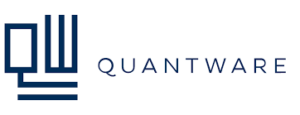
QuantWare, founded in 2021, develops and sells superconducting quantum hardware including quantum processing units (QPUs), amplifiers, and cryogenic components. Positioned as a scalable hardware supplier, the company offers configurable QPUs like the Soprano-D and Contralto-D models, featuring up to 25 controllable qubits, designed for fast delivery and customizable configurations, previously accessible only to major tech labs.
Their product line includes Crescendo (a nearly quantum-limited TWPA for low-noise qubit readout), VIO-176 (a 3D chip platform supporting over 100 qubits), and Foundry Services with 45-day turnaround for custom chips. Pricing begins at €60,000 for entry-level QPUs and €300,000 for advanced Contralto units.
In 2024 and 2025, QuantWare expanded its enterprise offerings with Crescendo-E for high-volume TWPA deployment and enabled automated QPU characterization in under 25 minutes via partnerships with QuantrolOx and Qblox , a breakthrough in simplifying quantum integration and accelerating development cycles.
Read our most recent news on Quantware.
60. Qubit Engineering

Founded in 2018, Qubit Engineering is a quantum software company focused on energy sector applications. It develops quantum and classical optimization algorithms, particularly for wind turbine micro-siting , helping to improve wind farm efficiency and reduce project costs.
Their flagship product leverages quantum computing to optimize turbine placement, increasing energy output and lowering operational overhead in renewable energy infrastructure.
Read our most recent news on Qubit Engineering.
61. Qubit Pharmaceuticals

Qubit Pharmaceuticals, founded in 2020, is a Paris-based startup developing software platforms to accelerate drug discovery using high-performance computing (HPC) and emerging quantum computing technologies. Their core suite, ATLAS, is designed to simulate and co-design new drug candidates in collaboration with pharmaceutical and biotech firms.
The company also offers Gaia, a hybrid platform built on NVIDIA’s Quantum Optimized Device Architecture, which combines classical and quantum computing to dramatically reduce both development time and cost. In addition, their Hyperion simulation platform enables the development of next-generation quantum chemistry algorithms.
In July 2024, Qubit Pharmaceuticals announced that its Hyperion-1 emulator, co-developed with Sorbonne Université, reduced the quantum hardware requirements for small molecule simulations. The innovation earned €8 million in funding through the France 2030 national plan, reinforcing the company’s leading role in quantum-enabled drug discovery.
Read our most recent news on Qubit Pharmaceuticals.
62. QuEra Computing
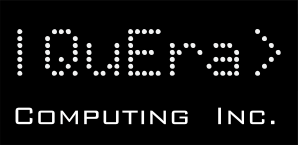
Founded in 2019, QuEra Computing builds scalable, programmable quantum computers based on neutral atom technology developed at Harvard and MIT. Its hardware traps and manipulates atoms using laser beams in vacuum chambers, creating reconfigurable qubit arrays cooled to near absolute zero. This architecture, powered by Rydberg blockade interactions, supports both analog and digital quantum computation.
QuEra’s Aquila processor, accessible via Amazon Braket, enables up to 256 neutral atom qubits, with dynamic control over qubit arrangement and local detuning, allowing for high flexibility in problem solving and analog simulation. Its roadmap targets 10 logical qubits by 2024, 30 by 2025 with error correction, and 100 by 2026 , paving the way toward utility-scale quantum computing.
The company has achieved a 99.5% two-qubit gate fidelity and launched tools like Bloqade, an open-source emulator. It is actively developing hybrid digital-analog platforms, and recently introduced a co-design program integrating hardware, software, and applications to accelerate adoption in business and research.
QuEra has also formed major partnerships, including with Kipu Quantum and PlanQK to provide easier access to quantum technology, and received investment from Google Quantum AI to advance fault-tolerance. In 2024, QuEra launched the Quantum Alliance Partner Program to unite tech leaders in addressing global computational challenges using neutral-atom systems.
Read our most recent news on QuEra Computing.
63. QuintessenceLabs

QuintessenceLabs, founded way back in 2008 out of research from the Australian National University, is a cybersecurity company pioneering quantum-safe encryption technologies. Focused on addressing the vulnerabilities of classical encryption in a post-quantum world, the company offers a range of advanced solutions to secure sensitive data.
Their flagship offerings include qOptica™, a Continuous Variable Quantum Key Distribution (CV-QKD) system enabling secure key exchange over optical links, and a high-speed quantum random number generator that delivers true randomness essential for robust encryption. QuintessenceLabs also provides crypto-agile key management tools and supports the Key Management Interoperability Protocol (KMIP) for seamless integration with enterprise systems.
Recognized globally for innovation, including as a World Economic Forum Global Innovator, QuintessenceLabs is tackling threats such as “harvest now, decrypt later” attacks with scalable, quantum-resilient security infrastructure.
Read our most recent news on QuintessenceLabs.
64. QuiX Quantum
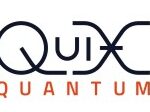
A company founded in 2019 and based in the Netherlands, QuiX Quantum specializes in integrated photonics for optical quantum computing. The company has developed reconfigurable photonic processors using stoichiometric silicon nitride (Si₃N₄) waveguides that operate at room temperature and offer high-precision remote configurability. These processors are designed to interface with a wide range of light sources due to the platform’s broad transparency range.
QuiX’s photonic processors have achieved significant technical milestones, including the launch of the world’s largest photonic quantum processor in 2022 and the delivery of 8-qubit and 64-qubit photonic quantum computers to the German Aerospace Center (DLR QCI). Their 20-mode Quantum Photonic Processor demonstrates low optical losses (2.9 dB) and transformation fidelity of 99%, supporting complex linear operations on-chip.
The company’s product portfolio includes turnkey quantum photonic processors, a scalable photonic quantum computer hardware stack, and customized solutions for sensing, communication, and computing. Notably, QuiX has demonstrated the on-chip generation of Greenberger-Horne-Zeilinger (GHZ) states , an essential step in creating complex entangled systems for scalable quantum computing.
In September 2024, QuiX launched Bia, a photonic-based quantum cloud platform for business and research use, supporting applications such as Boson Sampling and Quantum Monte Carlo simulations. In July 2025, QuiX raised €15 million in Series A funding to accelerate development of the world’s first universal single-photon-based photonic quantum computer, expected in 2026.
Read our most recent news on QuiX Quantum.
65. QunaSys
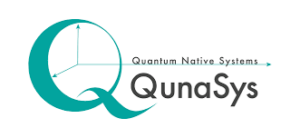
QunaSys, founded in 2018 and originating from the universities of Tokyo, Osaka, and Kyoto, develops quantum algorithms for chemistry, healthcare, and materials science. The company is known for maintaining Qulacs, a high-speed quantum circuit simulator written in C++ with a Python interface, widely used in quantum computational research. QunaSys also leads QPARC, a Japanese quantum computing consortium involving over 50 global enterprises focused on industrial applications.
The company launched Qamuy, a quantum cloud platform, and is a member of global initiatives like Q-STAR, Les Maisons du Quantique, and the Pistoia Alliance. In May 2023, QunaSys received an investment from IBM Ventures. In 2024, the company released QURI Chemistry on IBM’s Qiskit Functions Catalog, providing quantum algorithms tailored for chemical and materials R&D without requiring deep quantum programming knowledge. That same year, QunaSys introduced QURI SDK, an open-source platform supporting fault-tolerant quantum algorithm design, aiming to expand access to FTQC research across multiple disciplines.
Read our most recent news on QunaSys.
66. Qunnect
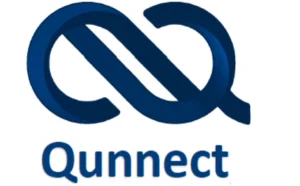
Qunnect, founded in 2017, builds light-based modular devices for quantum encryption, anchored by a room-temperature quantum memory. Its flagship rack-mounted memory device can store, manipulate, and retrieve optical qubits on demand, functioning like a telecom data buffer for quantum networks.
In collaboration with NYU, Qunnect established a 16km quantum link across New York City, demonstrating real-world quantum networking capabilities over standard fiber. The company’s GothamQ system later automated the distribution of entangled photons across 34km of urban fiber, maintaining 99% fidelity and 99.84% uptime , showcasing the feasibility of a quantum internet.
In June 2025, Qunnect raised $10 million in a Series A extension to scale deployment of its Carina product suite, a turnkey entanglement-based quantum networking solution compatible with commercial fiber infrastructure.
Read our most recent news on Qunnect.
67. QNu Labs

QNu Labs is an Indian startup delivering quantum key distribution solutions for secure communications. Founded in 2016 and headquartered in Bengaluru, it is India’s first company to develop commercial quantum-based cybersecurity products. Incubated at IIT-Madras, it later expanded to the US with a subsidiary in Massachusetts. Backed by Cisco Launchpad in 2018, QNu launched Armos (quantum key distribution) and Tropos (quantum random number generator) in 2020 for global markets.
Read our most recent news on QNu Labs
68. Riverlane

Riverlane, founded in 2016, is a UK-based global leader in quantum error correction (QEC) and is solely focused on solving error correction. Its flagship platform, Deltaflow, includes tools for control, calibration, runtime deployment, and decoding, all aimed at supporting real-time QEC.
Riverlane has developed a quantum simulation engine and is building a universal operating system for quantum computers. Key projects include Deltaflow, Riverlane’s quantum error correction stack with real-time QEC decoding, and Deltakit, the company’s education and tooling resources platform for learning, developing and adopting real-time QEC.
Backed by the University of Cambridge, leading technology VC firms, Horizon Europe and DSIT, Riverlane collaborates with companies like Rigetti and research institutions including Oak Ridge National Lab, achieving microsecond-scale error correction on real hardware. Its roadmap aims to support logical Clifford operations on systems with up to 1,000 physical qubits by 2025.
Read our most recent news on Riverlane.
69. SCALINQ

SCALINQ, founded in 2022, provides scalable hardware solutions for quantum computers, with a focus on superconducting and spin-qubit platforms.
The company offers full-stack packaging, filtering, and wiring products designed to simplify quantum processor scaling. Its flagship product, LINQER600, developed with IQM, is the largest commercial qubit packaging solution, capable of supporting chips with hundreds of qubits.
Tested with Chalmers University’s 150-qubit Radiance chip, LINQER600 is fully non-magnetic and tailored for high-density, large-scale quantum computing development.
Read our most recent news on SCALINQ.
70. SeeQC

SeeQC, founded in 2019, is developing a fully digital quantum computing platform based on superconducting technology. Its unique Digital Quantum Computing architecture integrates quantum processors with Single Flux Quantum (SFQ) digital chips that operate at cryogenic temperatures, enabling high-speed, energy-efficient control directly alongside qubits.
Their SeeQC System Red demonstrates this capability, delivering two-qubit gate speeds of 39ns and fidelities of 98.4% , among the fastest available via public quantum cloud services. Built using silicon wafers at their in-house fab, SeeQC’s platform aims to overcome the inefficiencies and scaling limits of analog architectures by merging classical and quantum co-processing on a single chip.
Read our most recent news on SeeQC.
71. Single Quantum

Single Quantum, one of the older companies founded in 2012, manufactures superconducting single-photon detectors for use in advanced quantum and photonics applications. Their flagship product, the Single Quantum Eos, is a multi-channel SNSPD system known for its high detection efficiency, ultra-low dark count rates, and exceptional timing resolution.
These detectors are used in fields like quantum communication, quantum key distribution (QKD), LiDAR, and bio-imaging, and are among the fastest single-photon counting devices available. Their technology plays a crucial role in quantum information processing and optical quantum computing, with customers across industry, academia, and government sectors.
Read our most recent news on Single Quantum.
72. SpinQ

SpinQ, founded in 2018, develops quantum computing hardware and software, including superconducting and desktop NMR-based quantum systems. Their offerings span education, scientific research, AI, finance, and drug discovery.
The company provides cloud access to its superconducting computer, Lyra, and three NMR desktop systems: Gemini, Gemini Mini, and Triangulum. These systems support up to 8 qubits via Taurus Cloud, with programming through graphical interfaces, QASM, and Python-based SpinQKit.
In 2024, SpinQ launched a 20-qubit superconducting chip and the Vega quantum measurement system. Their web-based Tianyi EDA tool enables rapid design and simulation of superconducting chips. In August, they introduced SPINQ Gemini Lab, a 2-qubit NMR platform for hands-on teaching and quantum algorithm experimentation in European and North American universities.
Read our most recent news on SpinQ.
73. Silicon Quantum Computing
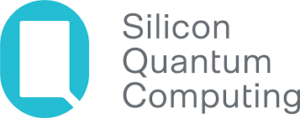
Founded in 2017 as a spinout from the University of New South Wales, Silicon Quantum Computing (SQC) aims to commercialize silicon-based quantum technologies developed at Australia’s Centre of Excellence for Quantum Computation and Communication Technology. The company is focused on building scalable quantum processors using atomic-scale silicon architectures.
In June 2022, SQC unveiled the world’s first atomic-scale quantum integrated circuit , an analogue quantum processor , delivered two years ahead of schedule. In February 2025, they successfully ran Grover’s algorithm on a four-qubit silicon chip with 93.46% accuracy and no error correction, highlighting significant progress in high-fidelity silicon quantum computing.
Read our most recent news on Silicon Quantum Computing.
74. Sparrow Quantum
Sparrow Quantum, founded in 2015 as a spin-off from the Niels Bohr Institute, specializes in high-performance single-photon sources based on InAs quantum dots and photonic-crystal waveguides. Their technology achieves photon coherence indistinguishability between 95% and 98%.
In October 2024, Sparrow’s photon chip was integrated into ORCA Computing’s PT-2 quantum system, advancing generative AI and quantum machine learning through scalable, HPC-compatible photonic quantum solutions.
Read our most recent news on Sparrow Quantum.
75. Strangeworks
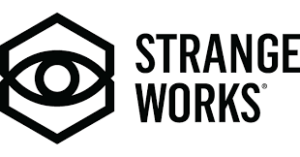
Strangeworks, founded in 2018, is a quantum computing software company focused on making quantum and emerging computing technologies accessible. Serving sectors like aerospace, energy, finance, and pharmaceuticals, the company provides tools that integrate quantum, AI, and high-performance computing.
Its flagship offering, Strangeworks QC, is a free platform that supports quantum programming using tools like Qiskit, Cirq, and Amazon Braket. For enterprise users, Strangeworks EQ delivers infrastructure with IP protection, private deployments, and training. The company also runs the Strangeworks Quantum Syndicate, a collaborative community uniting hardware and software providers, educators, and developers to accelerate the future of quantum computing.
Read our most recent news on Strangeworks.
76. Terra Quantum
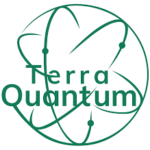
Founded in 2019, Terra Quantum AG is based in Switzerland and develops quantum software, hardware, and algorithms across cybersecurity, AI/ML, and life sciences. Its operations are structured around three core services: Quantum Algorithms as a Service, Quantum Compute as a Service, and Quantum Safety as a Service.
Their offerings include TQ42, a hybrid quantum cloud platform for enterprises, and TQ42 Cryptography, an open-source library aligned with NIST’s post-quantum standards. Terra Quantum has achieved a 1707 km quantum key distribution (QKD) milestone, and their QCKD protocol enables secure communication over long distances.
In 2024, the company launched the TQ42 Studio , a hybrid AI/quantum development platform , and began a collaboration with Unilever using quantum machine learning for skin microbiome research. Terra Quantum is also working with the U.S. Air Force under an SBIR contract to develop a quantum-resistant communication network.
Read our most recent news on Terra Quantum.
77. Turing

Turing, founded in 2016, is a private AI software company focused on blending classical and quantum machine learning to build practical, socially beneficial quantum applications. The company is currently developing quantum random access memory (qRAM) to enable scalable, fault-tolerant quantum computing. Their qRAM approach centers on storing and producing entanglement efficiently , key to scaling quantum machines for industrial use.
Read our most recent news on Turing.
78. Universal Quantum

Universal Quantum, founded in 2019, is developing scalable trapped-ion quantum computers using microwave-based technology instead of laser beams. This design lowers the cooling requirements to -200°C, making the system more practical and scalable. In a major milestone, Universal Quantum secured a €67 million contract from the German Aerospace Center (DLR) to build two quantum computers , one single-chip and one multi-chip system with up to 100 qubits , within four years.
The company, in collaboration with the University of Sussex, demonstrated record-breaking qubit transfer speeds and connectivity by linking quantum microchips with 99.999993% fidelity. In 2024, they launched the first commercial ASIC chip for their iQPU, improving qubit control and error correction, and introduced new methods such as transversal CNOT gates and constant-time magic state distillation to enhance fault tolerance and scalability. Universal Quantum ultimately aims to build machines capable of handling millions of qubits.
Read our most recent news on Universal Quantum.
79. Welinq

Founded in 2022, Welinq develops hardware solutions to interconnect quantum processors over long distances without losing coherence. Its technology is centered on high-performance quantum memory based on cold atoms, enabling the creation of quantum links that scale computing power by connecting multiple QPUs. Supported by academic partners like Sorbonne Université and CNRS, Welinq’s R&D is based in Paris.
In March 2025, the company launched the first commercial quantum memory for data centers, achieving over 90% efficiency at room temperature. This breakthrough positions Welinq as a key enabler of distributed quantum architectures and the future quantum internet.
Read our most recent news on Welinq.
80. Xanadu
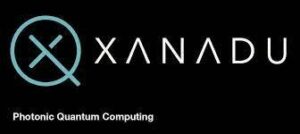
Xanadu, founded in 2016, is a leading full-stack quantum computing company focused on photonics. It develops both hardware and software, including the open-source platforms Strawberry Fields and PennyLane, enabling quantum machine learning and hybrid quantum-classical computing. Its hardware innovations are based on silicon photonic chips that operate at room temperature.
The company’s flagship system, Borealis, is a 216-qubit photonic quantum computer that demonstrated quantum advantage in 2022. Available via Xanadu Cloud and Amazon Braket, Borealis showcases squeezed-state qubits for specialized quantum tasks. In 2025, Xanadu introduced Aurora, a scalable, modular photonic quantum computer designed for fault tolerance, with ambitions to launch a full-scale quantum data center by 2029.
Xanadu is also advancing quantum error correction through the development of Gottesman-Kitaev-Preskill (GKP) qubits , error-resistant photonic states that enable reliable quantum operations at room temperature, addressing two of the field’s biggest challenges: scalability and error correction.
Read our most recent news on Xanadu.
Conclusion
The quantum computing sector in 2026 is a dynamic fusion of established tech giants and agile innovators, each pushing the boundaries of what’s computationally possible.













